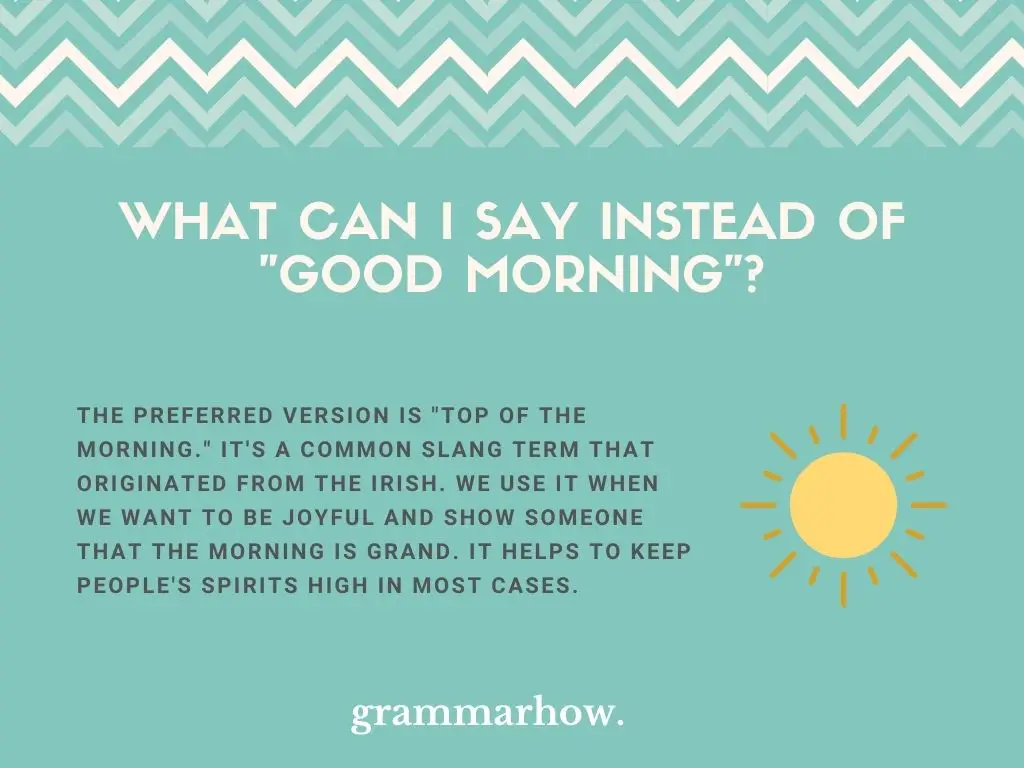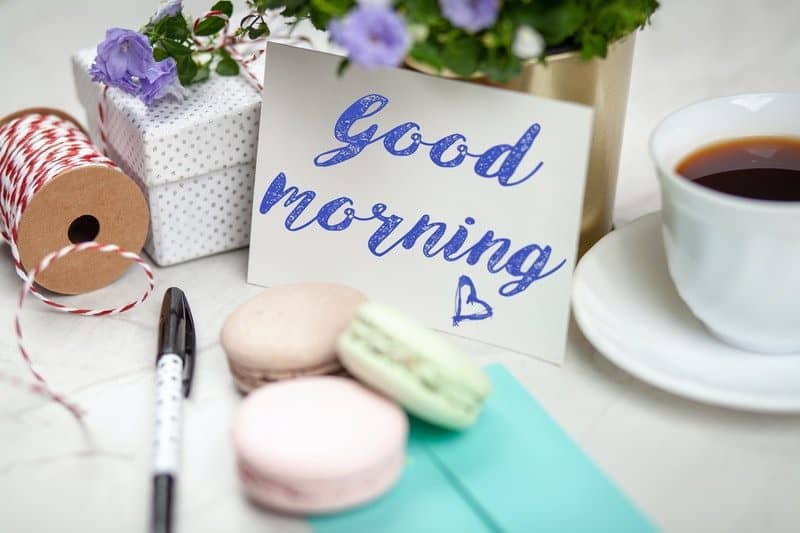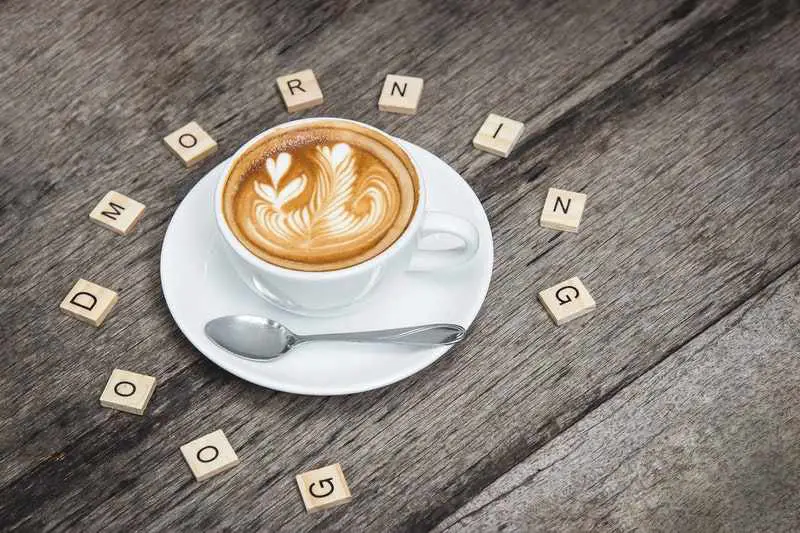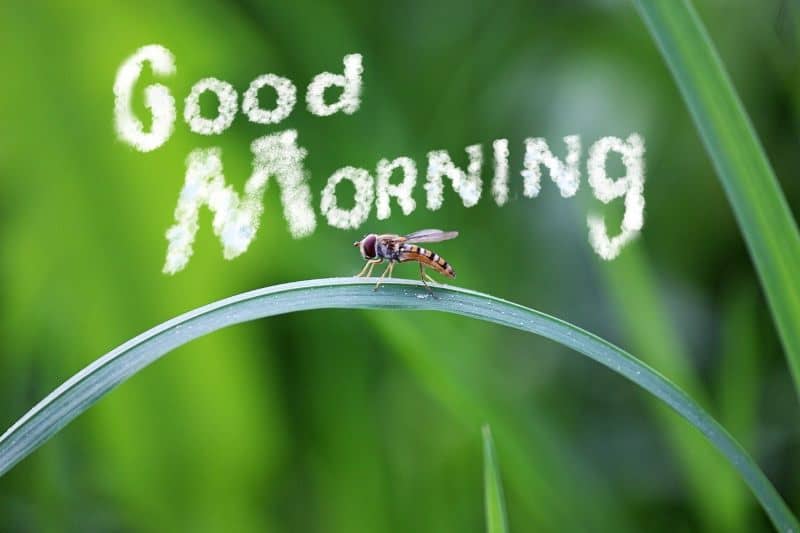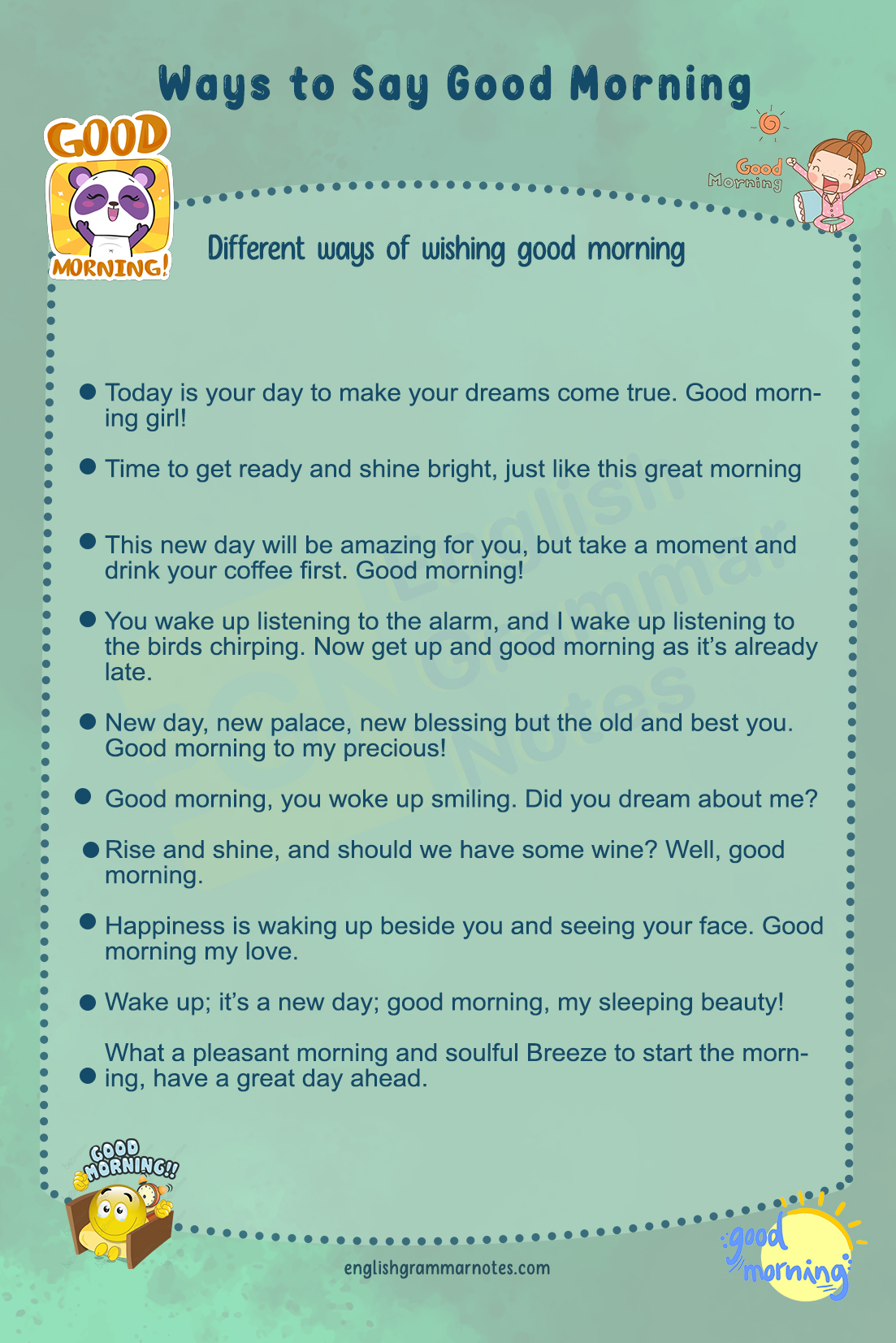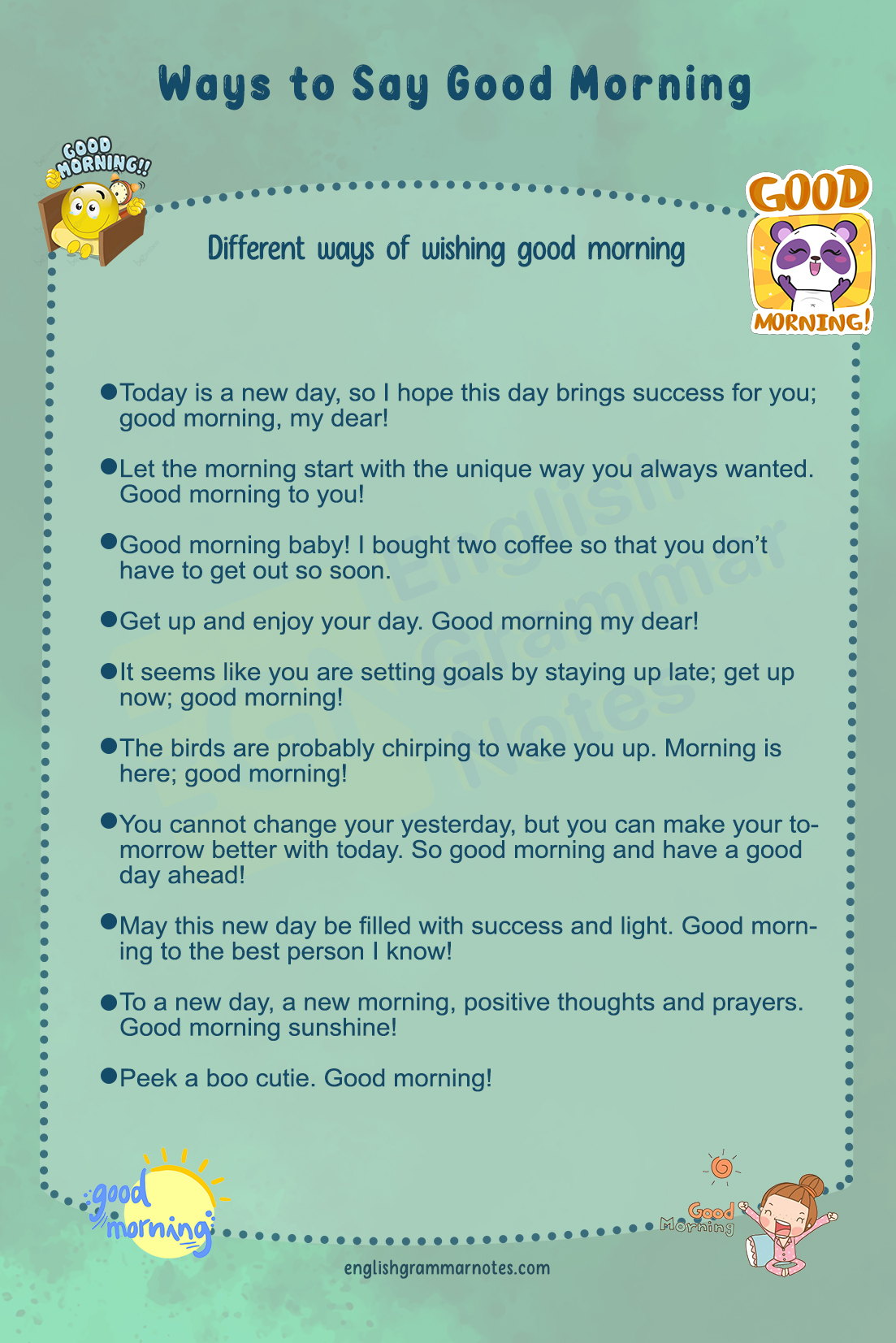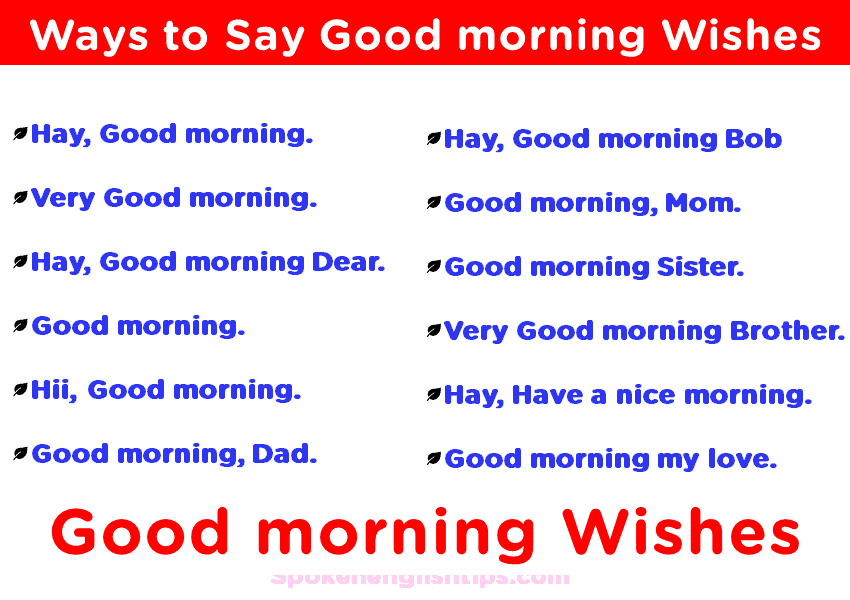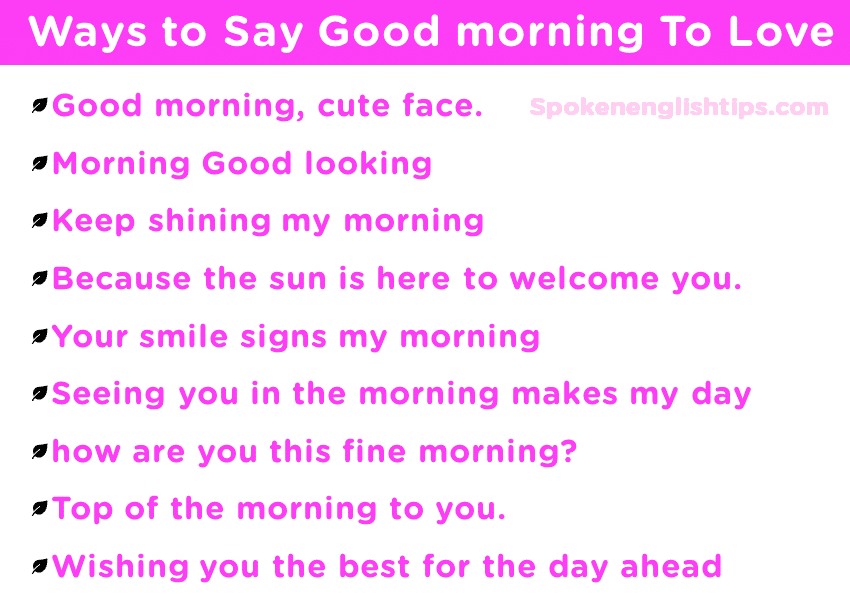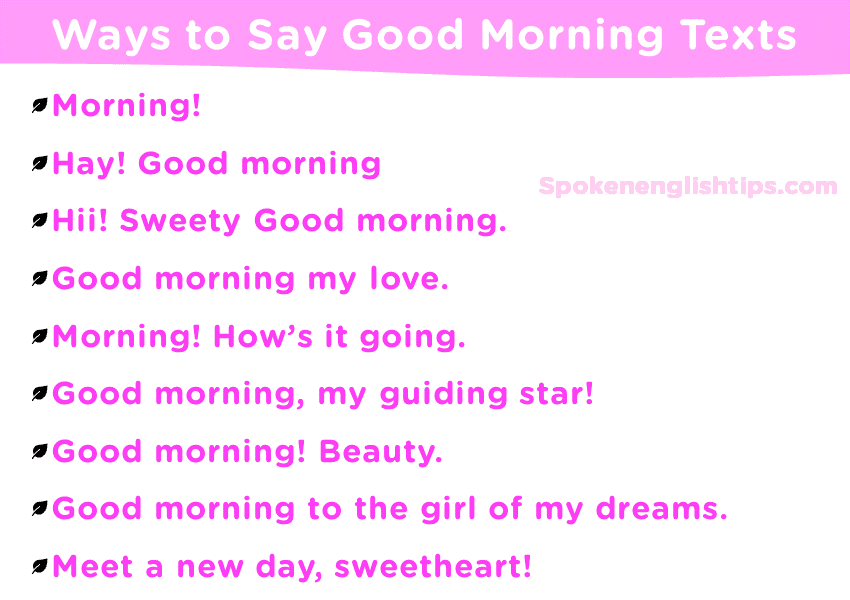“Good morning” is somewhat overused. It’s a great word when we’re welcoming and trying to show someone we care. However, there are alternatives to it, and they might be useful to you if you’re sick of saying “good morning.” This article will show you the best ones.
What Can I Say Instead Of “Good Morning”?
There are plenty of ways we can replace “good morning.” You should try out one of the following to see which one works best for you:
- Top of the morning!
- G’day!
- Greetings
- Glad to see you!
- Lovely day, isn’t it?
- Morning!
- Rise and shine!
- Howdy, partner!
- You survived!
- You made it!
- Fancy a coffee?
- Always nice to see your bright face in the morning
The preferred version is “top of the morning.” It’s a common slang term that originated from the Irish. We use it when we want to be joyful and show someone that the morning is grand. It helps to keep people’s spirits high in most cases.
Top Of The Morning!
“Top of the morning” is a great way to replicate Irish slang. It’s common for other countries and dialects to use this phrase as a jovial way of greeting someone. It usually puts people in a happy mood when they hear this, and we recommend you try it and see.
These examples will help you to understand a little more about it:
- Top of the morning, sir! I hope you had a pleasant night once you left your office.
- Top of the morning to you! It feels like it’s been too long since we last spoke.
- Top of the morning, then! I can’t believe you’re here so early.
G’day!
“G’day” is another slang phrase we can use. This time, we are copying the Australian dialect, where it is common for them to shorten “good” to a “G” when they say this phrase. It’s a friendly way of saying “hello” or “good morning” to someone.
Technically, this is not a “morning” greeting. It can work at any point in the day. However, it’s most effective when you’re seeing someone for the first time in a day, which usually happens in the morning.
Here are some examples:
- G’day! It’s looking like it’s going to be a good one out there today.
- G’day, mate! How have you been over the last few hours?
- G’day, man! It looks like you’ve seen a ghost, though! Are you feeling alright?
Greetings
“Greetings” is a humorous way of saying “good morning” to someone. We use it to imitate the sci-fi franchise where “greetings” is common for alien lifeforms to greet us with. It’s more of a satirical choice than the others, but it still works in the morning.
These examples will show you how it works:
- Greetings to you, sir! I hope you had a great night last night.
- Greeting and salutations, my little friend. How are you doing today?
- Greetings, Mr. Osborn! It’s so nice to see you!
Glad To See You!
“Glad to see you” is a nice way of welcoming somebody in the morning. We use “glad” in this way to show that their presence has brightened our mood. It works well when we really like the person, though we don’t have to know them if we use it.
Here are some examples of how it works:
- Hey, glad to see you! If you’d just like to take a seat over there, he’ll be right with you.
- Glad to see you, Mike! It’s been a long time, though!
- Glad to see you again! How long has it been now, Sarah?
Lovely Day, Isn’t It?
“Lovely day, isn’t it” is a question we can ask instead of greeting someone. We use this when the weather outside is nice, and we want people to feel happy about the weather in the morning. This is usually a simple way to start a conversation with someone too.
Here are a few examples:
- It’s a lovely day, isn’t it? Looks like it’ll be sunny all day today!
- Wow, it’s a lovely day, isn’t it? I could lay out there sunbathing all day long!
- It’s a lovely day, isn’t it? Why are you looking so glum?
“Morning” is a simple way to replace “good morning.” We don’t always have to say “good” when using the greeting. We might remove it when we don’t think it is a “good morning” or when someone doesn’t look like they’re having the best day.
However, it can also work well to say “morning” when we exclaim it. If we use it with an exclamation, it means that we are being enthusiastic about our “morning” greeting, even though we do not say “good.”
When used in this way, we imply the “good” portion of the phrase without having to say it.
These examples will show you how it works:
- Morning, soldier! Looks like a great day today, doesn’t it?
- Morning! How have you been? It feels like I haven’t seen you in ages.
- Morning. I hope you’re doing a little bit better today.
Rise And Shine!
“Rise and shine” is a great way to say “good morning.” We typically use it when we wake somebody up. “Rise” implies they are just getting out of bed, so we would mostly use it for family members or partners when we are waking them up.
If we act like our family member’s alarm clock, a phrase like “rise and shine” can be a great way to keep them entertained. They might hate you for it at first (especially if they’re not morning people), but it’s still fun to use.
Here are some great examples:
- Rise and shine, you lot! It’s time to tackle the day!
- Rise and shine, kids! Your school bus will be here any second if you don’t hurry.
- Rise and shine, John! Don’t make me tell you twice!
Howdy, Partner!
“Howdy, partner” is another fun way to say “good morning.” We use it to imitate the cowboy and western films, where “Howdy” was a common greeting for them. It is just a lively way of welcoming somebody or saying “hello” to someone.
It doesn’t always have to apply to the morning since it’s just another greeting. However, if you can say it to someone when you first see them, it can be a nice way to help brighten their day.
Here are some examples:
- Howdy, partner! You look like you didn’t get a wink of sleep last night.
- Howdy, partner! How are you doing on this fine day?
- Howdy, partner! I was about to ask the boss where you were!
You Survived!
“You survived” is a humorous way to welcome someone the next morning. We typically use this in place of “good morning” when we know that someone had a rough night or a heavy partying one. It can be funny and a great way to start someone’s morning.
These examples will help you to get the most out of it:
- You survived! I didn’t think I’d ever see you here again, to be honest.
- Oh, look, you survived! The boss wants to see you right away, though.
- You survived! I’ll be damned! Well, it’s pleasant to have you here.
You Made It!
“You made it” is another fun way to say that someone survived. We could also use it when we want to act shocked that someone made it to work, which works well when we know that someone isn’t fond of their job or had a heavy night of drinking the night before.
Here are some examples of how it works:
- You made it! What a surprise it is to see you today.
- You made it! I’m actually a little taken aback to see you here.
- Oh, you made it! Well, I guess I just lost a bet with the boss then.
Fancy A Coffee?
“Fancy a coffee” is a quick and easy question we can ask in place of saying “good morning.” Coffee is a common choice of drink for many people in the morning as it helps them wake up. We can say this when we first see someone to try and be helpful.
There are plenty of useful ways for us to use “fancy a coffee:”
- Hey, Jack! Fancy a coffee? I’ve got the kettle on already.
- Fancy a coffee? You look like you could use one, mate.
- Fancy a coffee? I know you had a pretty heavy night last night.
Always Nice To See Your Bright Face In The Morning
“Always nice to see your bright face in the morning” works on two levels. It can be kind and charming if you genuinely mean it, or it can be fun if you use it sarcastically to say that somebody looks like a mess. Either way, it’s a great way of saying “good morning.”
Here are some great examples to show you how it works:
- It’s always nice to see your bright face in the morning, Sue!
- Oh, look who it is! Always nice to see your bright face in the morning, boss!
- Always nice to see your bright face in the morning. Though, it doesn’t look half as bright as it usually does!
You may also like:
27 Best Replies To “Good Morning” (For All Situations)
Good Morning [name]: Is There A Comma After “Good Morning”?
Martin holds a Master’s degree in Finance and International Business. He has six years of experience in professional communication with clients, executives, and colleagues. Furthermore, he has teaching experience from Aarhus University. Martin has been featured as an expert in communication and teaching on Forbes and Shopify. Read more about Martin here.
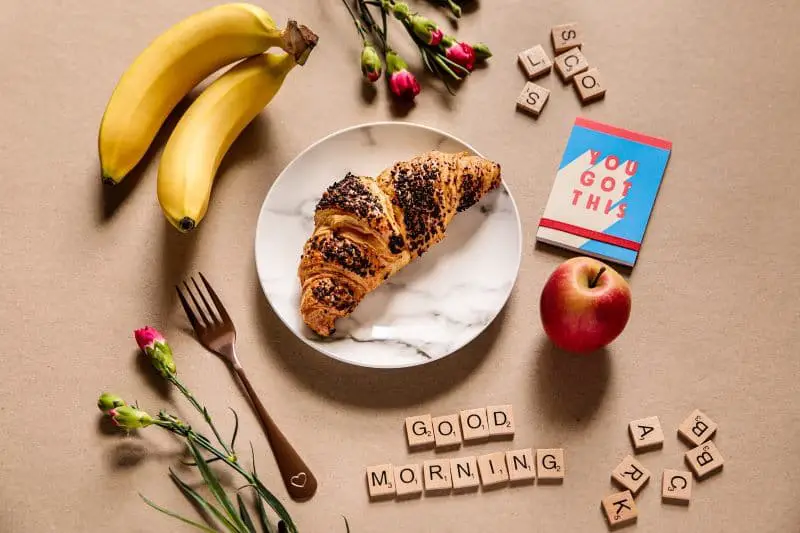
GOOD MORNING. A polite greeting and acknowledgment in the early hours of the day. Each new day provides the opportunity to make our world a happier and more genuine place. Used properly, this greeting can convey well wishes for the day ahead. Along with hello, goodbye, thank you, and I love you -> good morning is one of the most commonly used travel words around the world. And knowing how to say good morning in different languages is a life skill worth having.
Start your day right and read on to find out exactly that…
Do you know:
Where does the term good morning come from?
The term is derived from Middle English gud mornynge (also as goode morne, gode morne), from Old English *gōdne morgen (“good morning”), a conjugate for an expression such as “I wish you a good morning.”
The Modern English word “morning” began in Middle English as morwening. This then developed into morwen, then morwe, and eventually morrow.
This greeting is flexible enough to be used by anyone in almost any setting from the formal to the most casual. A simple ‘good morning’ is likely to be one of the first words you’ll use when travelling and it’s always a good idea to know a few words in the language of the country you’re visiting. Read on to discover how to say good morning in a different language around the world.
What can I say instead of good morning?
- Rise and shine!
- Top of the mornin’ to ya!
- Seize the day with all your might
- Wake up and get your grind on
- May this day bring new opportunities and successes for you
- A little hello and lots of love to start your day
- hello in the a.m.
- I hope that your morning is as bright as your smile
- Look at what the cat dragged in
- Mornin’ mi amigo!
- Good day to you.
- Have a great day.
- Wishing you a day full of sunny smiles and happy thoughts.
- Isn’t it a beautiful day today?
- Look alive
- How is your morning going?
- Your smile brightens the start of my day
- Good morning, sunshine!
- Morning, good looking!
- Wakey-wakey!
- Good morning, sleeping beauty
If you wanted to salute every person in the world, you would need to learn those words from more than 5,000 languages. Thankfully, just by reading this post, you will be able to address good morning in all languages to over 90% of the world’s population 🙂
So whether you find yourself in Africa, Europe, Asia, or Latin America… I’ve got you covered.
Be sure to bookmark and save this post for future use and ease of reference.
Want to learn how to say HELLO and GOOD NIGHT too?
Read this guide on how to say hello in different languages of the world.
Or this good night in different languages.
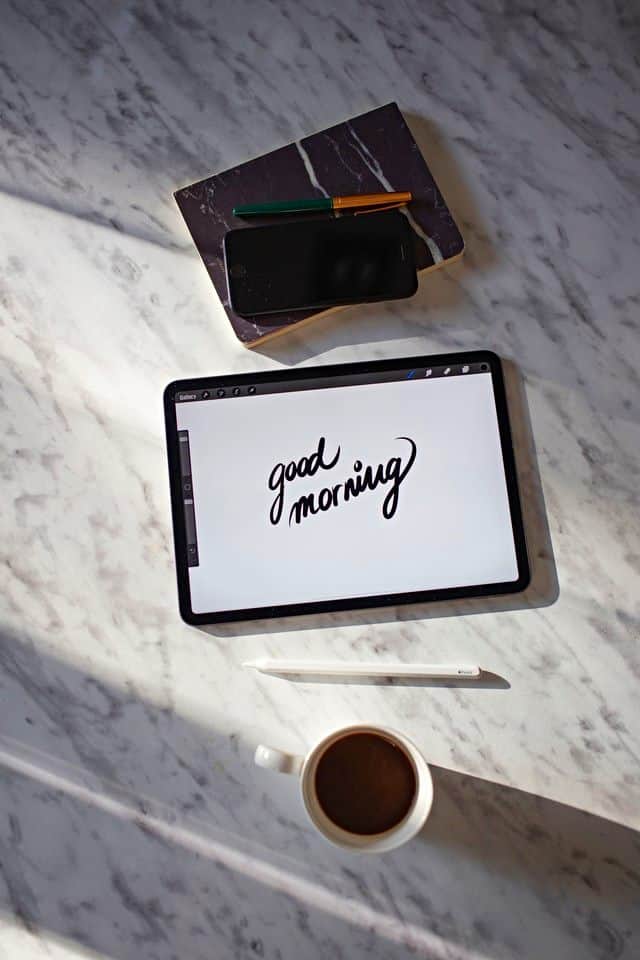
GOOD MORNING IN DIFFERENT LANGUAGES
Here’s your ultimate guide on 150+ ways to say good morning different languages around the world. Every language….
With pronunciation.
Are you ready to learn some morning greetings around the world?
I have included good morning in every language in the world I could think of. If you don’t spot your language, let me know (in the comments) and I will be happy to add it to this list.
Let’s go… Be sure NOT to miss the bonus at the end ↓↓
Want to learn how to say GOOD BYE and CHEERS too?
Read this guide to say good bye in different languages.
or this post on cheers in all languages.
How do you say good morning in different languages? Every language in the world here ↓
Let’s get into it…
Here’s how to say “good morning” in:
Afrikaans
How to say good morning in Afrikaans:
- Goeie more
— a South African term most commonly used in Afrikaans when meeting in the morning in South Africa. The word is a combination of Dutch words goeie ‘good’ and more ‘morning.’ - More
An informal, shortened version of the greeting above
Afrikaans is a West Germanic language of Southern Africa mostly derived from Dutch. It developed as Dutch settlers and indigenous African mixed languages beginning in the 17th century. Today, an estimated 15 to 23 million people call Afrikaans their mother tongue. It is mainly spoken in South Africa and Namibia and can also be heard in parts of Botswana and Zimbabwe.
Aklan
- mayad nga agahon
Aklan also known as Aklanon is an Austronesian language spoken by 460,000 Aklanon people in the province of Aklan on the island of Panay in the Philippines.
Albanian
- Mirëmëngjes
Albanian is an Indo-European language, spoken mainly in Albania and Kosovo, though it is also spoken in other areas of the Balkans. With about 7.5 million speakers, it comprises an independent branch within the Indo-European languages and is not closely related to any other language in Europe.
Aleut
- Qilachxizax̂
— is the Aleut word for morning
Aleut or Unangam Tunuu is a member of the Eskimo-Aleut language family, spoken by the Aleut people living on the Alaskan Peninsula, and on the Commander, Aleutian, and Pribilof Islands. It is the only language in the Aleut branch of the Eskimo–Aleut language family.
Alsatian
- Güete Morge
Alsatian is a West Germanic language spoken by around 900,000 people, mainly in the Alsace region of northeastern France.
Altai
- Јакшылыкту таҥла (Ĵakšılıktu tañla)
Altai is a language belonging to the Turkic language family and is officially spoken in the Altai Republic of Russia.
Amharic
- እንደምን አደርክ (əndämən addärk)
— used if you’re saying good morning to a man - እንደምን አደርሽ (əndämən addärš)
— used if you are greeting a woman - አንደምን አደሩ (əndämən addäru)
— a formal way to say morning to a group of people
This form is also used if you are using respect to refer to someone, such as if you are speaking to an elderly person
Amharic is a Semitic language and the official language of Ethiopia. Good morning also implies peace be with you. It can also be heard in Egypt and Eritrea, as well as in Israel, Sweden, Canada, and the United States.
Arabic
How to say good-morning in Arabic:
- صباح الخير (Sabah alkhyr)
— a formal, polite way of saying good morning in Arabic
Arabic (العربية) is a Semitic language spoken by over 420 million people as their first language in areas including North Africa countries, the Arabian Peninsula, and other parts of the Middle East. Many more people can also understand it as a second language. Modern Standard Arabic is the liturgical language for 1.6 billion Muslims and is the official written form of the language with the Arabic alphabet, which is written from right to left.
Aragonese
- Buen diya
Aragonese is a language in the Romance language family that is native to Spain and spoken by just over 10, 000 people in the Pyrenees valley of Aragon.
Aramaic
- Safro bricho
- Yasetel liesbukh
Aramaic ארמית is a member of the Semitic branch of the Afro-Asiatic language family that originated among the Arameans in the ancient region of Syria. It has a 3,000-year history and is still spoken by small groups of people in different parts of the Middle East.
Arapaho
- Nii’óóke’
Arapaho is one of the Plains Algonquian languages from the Algic language family, spoken by the Arapaho of Wyoming and Oklahoma.
Armenian
- Բարի’ լույս: (Bari luys)
— response to this is: Աստծո բարին: (Asttzo barin) - Բարի լոյս: (Paree looys)
— Աստուծոյ բարին: (Asdoodzo pareen) is the response to this
Armenian is an Indo-European language spoken in the Republic of Armenia, as well as in large communities of Armenian diaspora by around 6.7 million people.
Assamese
- সুপ্ৰভাত (xuprôbhat)
Armenian is an Indo-European language spoken mainly in the northeast Indian state of Assam, with over 15 million native speakers.
Assyrian
- Kedamtookh brikhta
Assyrian, also known as Syrian or neo Aramaic is the East Semitic dialect that evolved from ancient Akkadian after 1950 B.C. As a Semitic language, it originated from the middle eastern region and is related to Arabic and Hebrew.
Asturian
- Bonos dies
Asturian is a West Iberian Romance language spoken by around 400,000 people in Asturias, Spain.
Australian
- G’day
— usually followed by mate
Australia has no official language, however Australian English is the variety of English spoken here.
Azerbaijani
- Sabahınız xeyir
Azerbaijani or Azeri is the primary and official language of Azerbaijan by its 8.8 million native speakers. It is also widely spoken in Northern Iran and to a small extent in southern Dagestan, the Kvemo Kartli region of Georgia, eastern Turkey, in Shia cities of Iraq, like Karbala and Kirkuk. The language is a Turkic language and is highly intelligible with modern-day Turkish.
Balinese
- Rahajeng semeng
Balinese belongs to the Malayo-Polynesian language family and is spoken by around 3.3 million people on the Indonesian island of Bali as well as the regions of Nusa Penida, Lombok, Java, Sumatra, and Sulawesi.
Basque
- Egun on
Basque (euskara) is a language spoken in the Basque Country (Gipuzkoa, Araba, Bizkaia) and Navarra (in Spain) as well as in the French Basque Country (Labourd, Soule and Basse-Navarre). Linguistically, Basque is a language isolate and is unrelated to the other languages of Europe.
Bashkir
- хәйерле ирте (xäyyerlye irtye)
Bashkir is an endangered language belonging to the Kipchak branch of the Turkic languages. Closely related to the Tatar and Kazakh languages, it is spoken by around 1.4 million native speakers in Russia, as well as in Ukraine, Kazakhstan, Belarus, Uzbekistan, and other neighboring post-Soviet regions.
Bavarian / Austrian German
- Guadn moing
Bavarian is a regional dialect of German spoken in the German state of Bavaria, western Austria, and Northeastern Italy by over 14 million people. It uses German grammar, but takes several root words from Latin.
Belarusian
- Добрай раніцы (Dobray ranici)
Belarusian is the official language of Belarus. This East Slavic language is also spoken in Russia, Ukraine and Poland.
Bengali
- সুপ্রভাত Nomoskar
— a common way of greeting in Bengali. - Additionally Shu-probhaat
can also be used
Bengali বাংলা is the only official language of Bangladesh, one of the 22 official languages of India, and the sixth most spoken language in the world. It is spoken as a first language by the majority of the population in Bangladesh, as well as people in the Indian state of West Bengal.
Berber
- tifawin
- sbah Lkhir
Berber, also known as the Amazigh languages, is a branch of the Afroasiatic language family that comprises of around forty closely related languages spoken by the Berbers. The Berber people are indigenous to North Africa, with the heaviest concentration found in Morocco. The major Berber languages include Tamazight, Tarifit, Tashelhit (Tashelhiyt, Tashelhait, Shilha), Kabyle, and Tamahaq.
Bhojpuri
- राम राम (raam raam)
Bhojpuri is an Indo-Aryan language, considered to be one of the most rapidly growing languages in the world, spoken by over 40 million speakers in northern-eastern India and the Terai region of Nepal.
Bislama
- Gudmoning
Bislama is an English-based creole language and one of the official languages of the island of Vanuatu with around 10,000 native speakers.
Bodo
- मोजां फुं (Mwjang Fung)
Bodo बर’/बड़ is the Sino-Tibetan language spoken primarily by the Bodo people of Northeast India, Nepal and Bengal. It is official language of the Bodoland Autonomous region and co-official language of the state of Assam in India.
Bosnian
- Dobro jutro
Bosnian, a south Slavic language of the Indo-European family, is the official language of Bosnia and is essentially the same language as Croatian and Serbian. All three languages used to be known as Serbo-Croatian before the break-up of Yugoslavia.
Brazilian Portuguese
- Bom dia
Brazilian Portuguese (Português do Brasil) is the variety of Portuguese dialect spoken in Brazil. It is spoken by virtually all of the 200 million inhabitants of Brazil and spoken widely across the Brazilian diaspora. European Portuguese differs from the Brazilian variety in pronunciation, as well as in some vocabulary.
Breton
- Demat
Breton is a Southwestern Brittonic language of the Celtic language spoken in Brittany in the northwest of France.
Bulgarian
Say good morning in Bulgarian:
- Добро утро (Dobro utro)
Bulgarian is a South Slavic language spoken in Southeastern Europe, primarily in Bulgaria. It is the country’s only official language and Bulgarian is written with Cyrillic.
Burmese
- Mingalarba မင်္ဂလာနံနက်ခင်းပါ
Burmese is a Sino-Tibetan language spoken in Myanmar where it is an official language and the language of the Bamar people, the country’s principal ethnic group.
Cambodian Khmer
- ’ârŭn suŏ sdei អរុណសួស្តី
Khmer is the language of the Khmer people and the official language of Cambodia. With over 16 million speakers, it is the second most widely spoken Austroasiatic language.
Catalan
- Bon dia
Catalan is a Western Romance language derived from Vulgar Latin and named after the medieval Principality of Catalonia, in northeastern of modern Spain. It is the only official language of Andorra, and a co-official language of the Spanish autonomous communities of Catalonia, the Balearic Spanish Islands and Valencia.
Cebuano
- Maayong adlaw
- Maayong buntag
Cebuano, also known as Bisaya or Binisaya, is an Austronesian language spoken in the southern Philippines region in Central Visayas, western parts of Eastern Visayas and the majority of Mindanao.
Chichewa
- M’mawa wabwino
- Mwauka bwanji
Chichewa, also known as Nyanja, is a Bantu language spoken in much of Southern, Southeast and East Africa. It is the national language of Malawi and is also spoken in Zambia, Mozambique and Zimbabwe.
Chinese Cantonese
How to say good-morning in Chinese Cantonese:
- jóusàhn 早晨
— A formal way to say good morning
Cantonese is a variety of Chinese originating from the city of Guangzhou and its surrounding area in Southeastern China. Belonging to the Sino-Tibetan family of languages, it is the traditional prestige variety of the Yue Chinese dialect group, which has about 68 million native speakers.
Chinese Mandarin
- zǎo’ān 早安
- zǎoshàng hǎo 早上好
- zǎochén hǎo 早晨好
- nǐ zǎo 你早
Mandarin Chinese is the official language of Mainland China and Taiwan, and is one of the official languages of Singapore. Mandarin is often placed first in lists of languages by number of native speakers with almost a billion speakers.
Cimbrian
- Guuten mòrgont
Cimbrian is a language of Germanic origin spoken by more than 2,000 people in Northern Italy. It is related to Bavarian and refers to any of several local Upper German varieties spoken in the region, with the speakers of the language referred to as Zimbern.
Cornish
- Myttin da
Cornish is a Southwestern Brittonic language that forms part of the Celtic language family. It became an extinct language in Cornwall at the end of the 18th century and underwent a revival in the 20th century.
Corsican
- Bonghjornu
— the most commonly used way of saying good-morning in Corsican
Corsican is a Romance language from the Italo-Dalmatian family that is spoken predominantly on the Mediterranean tropical island of Corsica. Corsican is closely related to Tuscan and to the Florentine-based Italian.
Croatian
Say good morning in Croatian:
- Dobro jutro
Croatian or Hrvatski is a South Slavic language spoken mainly in Croatia, Bosnia and Herzegovina, some parts of Serbia, and the neighbouring countries by about 5.5 million people.
Czech
- dobré ráno
- dobrý den
Czech is a Western Slavic language which is mutually intelligible with Slovak. It is mainly spoken in the Czech Republic with over 10,5 million speakers.
Danish
- Godmorgen
Danish is a Scandinavian language and the only official language of the Kingdom of Denmark. Closely related to Swedish and Norwegian, it is spoken in Denmark and in some parts of Greenland and northern Germany.
Dhivehi
- Ba’ajjaveri hedhuneh
Dhivehi or Maldivian is an Indo-Aryan language spoken on the islands of Maldives where it is an official language.
Dutch
- Goedemorgen
— the most common way of saying good morning in Dutch.
Dutch is a West Germanic language spoken by about 27 million people world-wide mostly in the Netherlands, northern Belgium, and Suriname.
Dzongkha Bhutanese
- ངྲོ་པདེ་ལེགས། Dobro delek
- Chubo dele
Dzonkha or Bhutanese is the sole official and national language of the Kingdom of Bhutan. This Sino-Tibetan language is spoken by over half a million people in Bhutan and is written with the Tibetan alphabet.
Elfdalian
- Gumåron
Elfdalian also called Övdalian is a North Germanic Indo-European language spoken by up to 3,000 people in the Älvdalen region of Sweden.
English
Ways to say good morning different languages in English:
- good morning
— this is the standard morning greeting - morning
— a casual friendly way of greeting early in the day
English is a West Germanic language that was first spoken in Anglo-Saxon England in the early Middle Ages. It is spoken in many countries around the world with over 375 million native speakers. English is the second most spoken language, and the most international language in the world.
Estonian
- tere hommikust
— the most common way of saying good morning in Estonian
Estonian is a Finno-Ugric language spoken as the official language in Estonia. It is closely related to Finnish.
Faroese
- Góðan morgun
Faroese is a North Germanic language spoken as a first language by Faroe Islanders, residing on the Faroe Islands and in other areas, mainly Denmark.
Farsi / Persian
How to say good morning in Persian:
- Sob Bekhair صبح بخیر
- Salam
— is a more commonly used, casual greeting to use with friends.
Persian is an ancient language belonging to the Iranian branch of the Indo-Iranian subdivision of the Indo-European languages. It is a pluricentric language predominantly spoken and used officially within Iran, Afghanistan, and Tajikistan.
Fijian
- Ni sa yadra
- Yadra
Fijian is an Austronesian language of the Malayo-Polynesian family. It is an official language of Fiji spoken by some 350,000–450,000 ethnic Fijians as a native language.
Finnish
- Hyvää huomenta
- Huomenta
Finns usually greet each other in an informal way, so you can use the casual greetings in 99% of all situations.
Finnish is a Finno-Ugric language spoken only in Finland as the official language and by ethnic Finns elsewhere in Scandinavia.
Flemish
- Goeije morn
Native to the historical region of Flanders in northern Belgium, Flemish is a Low Franconian dialect cluster of the Dutch language. It is sometimes referred to as Flemish Dutch, Belgian Dutch, or Southern Dutch spoken by over 6 million people.
French
How to say good morning in French:
- Bonjour
— the most common way of saying good morning, and translates to good day.
Pronunciation: bon·zhuor - bon matin
— can also be used
French is a Romance language of the Indo-European family spoken by over 354 million people in France and around the world. It is the third most spoken language in Europe, the official language of 29 countries, spoken in parts of Africa, North America, and South America.
Frisian
- Goeie moarn
The Frisian languages are a closely related group of Germanic languages, spoken by about 500,000 Frisian people, who live on the southern fringes of the North Sea in the Netherlands and Germany.
Friulian
- Bundì
Friulian or Friulan is a Romance language of the Rhaeto-Romance family. It is spoken in the Friuli region of northeastern Italy with around 600,000 total speakers.
Galician
- Bos días
Galician is a Romance language spoken by around 2.4 million people in Galicia, a region in northwestern Spain, where it is the official language.
Georgian
- დილა მშვიდობისა Dila mushwidobisa
Georgian is the official language of Georgia and the country’s most widely spoken language with over 4.1 million people.
German
Learn how to say good morning in German:
- Guten Morgen
— used formally in German
German Deutsch is the official language of both Germany and Austria and one of the three official languages of Switzerland. German belongs to the West Germanic group of the Indo-European language family. One of the major languages of the world, German is a native language to almost 100 million people worldwide and the most widely spoken native language in the European Union.
Gilbertese Kiribati
- Ko kaman uuti?
— to ask have you been awake for long? - E uara matiuum
— meaning how was your sleep
Gilbertese, also called Kiribati, is an Austronesian Oceanic language spoken mainly in Kiribati, but also on the islands of Fiji, the Solomon Islands, and Tuvalu.
Greek
How to say good-morning in Greek:
- Καλημέρα (Kaliméra)
- Καλημέρα σας (Kaliméra sas)
- Καλημέρα σου (Kaliméra su)
Greek (ελληνικά) belongs to the Hellenic branch of the Indo-European language family, mainly spoken in Greece, the Greek islands, and Cyprus an an official language. It has the longest documented history of any living Indo-European language, spanning more than 3,000 years of written records. There are about 13.1 million speakers of Greek worldwide and it is recognised as a minority language in Albania, Armenia, Hungary, Italy, Romania, Turkey and Ukraine.
Greenlandic
- Iterluarit
— is the Greenlandic word for a good morning - Kumoorn
Greenlandic falls under the Eskimo–Aleut language family, spoken by around 57,000 Greenlandic Inuit people in Greenland.
Gujarati
- સુપ્રભાત (suprabhat)
Gujarati is an Indo-Aryan language native to the Indian state of Gujarat and spoken predominantly by the Gujarati people. Gujarati is part of the greater Indo-European language family.
Haitian Creole
Say goodmorning in Haiti:
- Bonjou
Haitian Creole (kreyòl ayisyen)) is a French-based creole language spoken by 10–12 million people worldwide and the only language of most Haitians. Along with French it is one of the official languages of Haiti.
Hausa
- Ina kwana
- Barka da safiya
Hausa language, the most important indigenous bridge language in West and Central Africa, spoken as a first or second language by about 40–50 million people. It belongs to the Western branch of the Chadic language family within the Afro-Asiatic language phylum. It is spoken mainly in northern Nigeria and Niger, and also in Benin, Burkina Faso, Cameroon, the Central African Republic (CAR), Chad, Congo, Eritrea, Germany, Ghana, Sudan and Togo.
Hawaiian
How to say good morning in Hawaiian:
- Aloha kakahiaka
— this Hawaiian word is used for both welcome and morning. Additionally, the word is also used as an expression of love and well wishes. In fact, the expression is used so often, which is why Hawaii also goes by the nickname Aloha State.
The Hawaiian language is a Polynesian language that takes its name from Hawaiʻi, the largest island in the tropical North Pacific archipelago where it developed. Hawaiian, along with English, is an official language of the State of Hawaii, one of the best islands to visit.
Hebrew
- Boker tov בוקר טוב
Hebrew is a Northwest Semitic language spoken by over nine million people worldwide. Historically, it is regarded as the language of the Israelites and their ancestors. It is written using its own script from right to left.
Hindi
How to say good morning in Hindi:
- शुभ प्रभात shubh prabhaat
- नमस्ते namaste
- Shub Din
Hindi (हिन्दी) is an Indo-European language spoken in India, Nepal, and throughout the Indian diaspora. Hindi is descended from Sanskrit, sometimes called “the mother of all languages.” While there are 22 official languages and over 1,000 dialects of India, Hindi and English take precedence in government affairs. It is a link-language for over half of India’s population.
Hmong
- Zoo thaum sawv ntxov
Hmong is a Hmong-Mien language spoken by about 2.6 million people in China, Vietnam, Laos, Thailand, USA, and French Guiana.
Hopi
- Nukwang Talöngva
Hopi is a Uto-Aztecan language spoken by the Hopi people in northeastern Arizona, USA.
Hungarian
How to say good morning in Hungarian:
- Jó reggelt
Hungarian is a Uralic language of the Ugric branch spoken in Hungary and parts of several neighbouring countries. It is the official language of Hungary and one of the 24 official languages of the European Union.
Icelandic
- Góðan daginn
- Góðan dag
Icelandic (íslenska) is a North Germanic language spoken in Iceland as its official language. It’s most closely related to Faroese and Western Norwegian and has around 314,000 speakers. The language is more conservative than most other Western European languages.
Igbo
- Ụtụtụ ọma
Igbo is the principal native language of the Igbo people of southeastern Nigeria with around 45 million speakers and over 20 dialects.
Indonesian Bahasa
- Selamat pagi
— used when saying good morning in Bahasa. - Selamat siang
Indonesian (bahasa Indonesia) is the official language of Indonesia.With over 230 million speakers, it is one of the most widely spoken languages in the world. It is a group of varieties of Malay, an Austronesian language that has been used as the common language in the multilingual Indonesian archipelago for centuries. Indonesia uses the Latin alphabet system and Arabic numerals.
Inuktitut
- ᐅᓪᓛᓴᒃᑯᑦ
Ublaahatkut/Ullaasakkut
Inuktitut is an Eskimo-Aleut language spoken in Arctic territories and the topmost span of North America including Alaska and Northern Canada.
Irish
- Maidin mhaith
- Dia dhuit ar maidin
(singular) - Dia dhaoibh ar maidin
(plural)
Irish (Gaeilge) is one of the three Goidelic languages, along with Scottish Gaelic and Manx. This Goidelic branch together with the Brythonic branch (Welsh, Cornish and Breton) form the Celtic language family.
Italian
How to say good morning in Italian:
- Buongiorno
— the most common way of saying good morning in Italiano. While there are other ways of saying good morning in Italian, buongiorno works in almost every situation.
Italian (Italiano) is a Romance language of the Indo-European language family spoken by over 90 million people, the vast majority of which are in mainland Italy, and the Italian islands of Sicily and Sardinia. It is the official language of Italy, San Marino, and the Vatican City, closely descended from Latin.
Japanese
Saying good morning in Japanese:
- おはようございます (Ohayō gozaimasu)
— This term is the best way to greet someone in the early hours of the morning before 10 a.m. - おはよう (ohayō)
Japanese (日本語 Nihongo) is an East Asian language of the Japonic language family. It is spoken by about 125 million people, mostly in Japan, where it is the official and national language. Bowing, dating back to the 5th century, is a huge part of Japanese culture and is a sign of respect. In Japan, people readily bow to one another rather than actually saying the words.
Jamaican Patois
- Gud mawnin
Jamaican Patois, often also referred to as Jamaican Creole, is an English-based creole language with West African influences spoken mainly in Jamaica. Belonging to the English Creole language family, it is spoken by the majority of Jamaicans with over 3 million native speakers.
Javanese
- Sugeng énjing
Javanese is the language of the Javanese people of the island of Java, in Indonesia that is the native language of more than 98 million people.
Kannada
- ಶುಭೋದಯ shubhodaya
Kannada, spoken by nearly 45 million native speakers, is a Dravidian language of the people of Karnataka in southwestern India, and by significant linguistic minorities in the states of Maharashtra, Andhra Pradesh, Tamil Nadu, Telangana, Kerala and abroad.
Karelian
- Hyviä huondestu
Karelian is a Finno-Ugric language of the Uralic language family, spoken in Karelia republic of northwestern Russia.
Kashubian
- Dzen dobri
Kashubian is a member of the West Slavic group of Slavic languages with around 100,000 speakers in Poland.
Kazakh
- Қайырлы таң Qayırlı tañ
Kazakh is a Turkic language of the Kipchak branch spoken in Central Asia and the official language of Kazakhstan. The language comprises 21 million native speakers including regions of Bayan-Ulgii in Mongolia and the Dzungarian region of Xinjiang, China.
Korean
Good morning in Korean:
- 안녕하십니까 (annyeong hashimnikka)
— this is the most common way to say good morning. - 좋은아침 joh-eun achim
Korean, an East Asian language, is the official language of South Korea (Republic of Korea) and North Korea (Democratic People’s Republic of Korea) spoken by more than 75 million people.
Kurdish
- Beyanî baş
- Spéde bi xer (sg)
Kurdish is spoken by about 30 million Kurds in western Asia including parts of Kurdistan, Iraq, Turkey, Iran, and Syria. It is one of the Indo-Iranian languages, ranks as the third largest Iranian language, after Persian and Pashto.
Kyrgyz
- кайырдуу таң
- Кутмандуу таңыңыз менен
Kutmanduu tanyngyz menen
Kyrgyz is a member of the Kipchak branch of the Turkic language family spoken by over 4 million speakers mainly in Kyrgyzstan, and also in China, Tajikistan, Afghanistan and Turkey.
Lao
- ສະບາຍດີຕອນເຊົ້າ
Arrun Suo Sdey
Lao is the main language of Laos. It is a Kra–Dai language serving as a common language among all citizens of Laos, who speak approximately 90 other languages, many of which are unrelated to Lao. Modern Lao is heavily influenced by the Thai language and comprises over 30 million native speakers.
Latin
How to say goodmorning in Latin:
- Bonum mane
- Quid agis mane
Latin was the dominant language of the Roman Empire from 6th century BC to 600 AD. When the Roman Empire collapsed, Latin evolved into the various languages that we know today. Italian, French, Portuguese, Spanish, and Romanian all consider Latin as their parent tongue. Latin is a classical language belonging to the Italic branch of the Indo-European languages.
Latvian
- Labrīt
Latvian (latviešu valoda) is an Indo-European Eastern Baltic language spoken in the Baltic region. It is the official language of Latvia and one of the official languages of the European Union.
Limburgish
- Gojemörge
Limburgish is a member of the East Low Franconian group of the Germanic languages considered a variety of German or Dutch by many people. It is spoken by around 1.6 million people in the Netherlands and Belgium.
Lingala
- Mbote
Lingala is a Bantu language spoken throughout the northwestern part of the Democratic Republic of the Congo and a large part of the Republic of the Congo by over 70 million people.
Lithuanian
Good morning to you in Lithuanian:
- Labas rytas
Lithuanian (lietuvių kalba) is an Eastern Baltic language spoken in the Baltic region as the official language of Lithuania. It is also one of the official languages of the European Union spoken by just under 3 million native speakers. The language is one of the oldest in the world.
Luxembourgish
- Gudde Moien
Luxembourgish is a West Germanic language that is spoken mainly in Luxembourg. About 390,000 people speak Luxembourgish worldwide.
Luganda
- Wasuze otya nno
Luganda, a Bantu language, is an official language of Uganda along with English and Swahili. It is spoken primarily in Kampala, but may be understood in much of the country and in the African Great Lakes region.
Macedonian
- Добро утро (Dobro utro)
Macedonian, the official language of the Republic of North Macedonia, is a south Slavic language spoken as a first language by 2 million people.
Malagasy
- Salama
- Manahoana
Malagasy is the national language of Madagascar belonging to the Austronesian Malayo-Polynesia family of languages spoken by 25 million people.
Malay
- Selamat Pagi
Malay (Bahasa Melayu) is an Austronesian language spoken as the sole official language of Malaysia and Brunei. It is also heard in Indonesia, Singapore, and Thailand at a total of 250 – 300 million speakers.
Malayalam
- സുപ്രഭാതം Suprabhatham
Malayalam (മലയാളം) belongs to the Dravidian language family, spoken mostly in the Southern Indian states of Kerala and Lakshadweep. Around 36 million people use this language, which is one of the 22 official languages of India.
Maltese
Say morning in Maltese:
- Bongu
- Bonġornu
- L-għodwa t-tajba
Maltese, a language of central Semitic origin written in the Latin script, is the national language of the island of Malta. It is spoken by around 420,000 people on the Mediterranean islands of Malta, Gozo, and Comino. The Maltese language developed from Sicilian Arabic. Over the centuries, it has incorporated many words derived from English, Italian, and French.
Maori
- Ata mārie
- Pai ata
Māori is an Eastern Polynesian language spoken by the Māori people, the indigenous population of New Zealand. it has also gained recognition as one of New Zealand’s official languages.
Marathi
- शुभ प्रभात Su-prabhat
Marathi is an Indo-Aryan language spoken by around 83.1 million Marathi people of Maharashtra, India. It is the official language and co-official language in the Maharashtra and Goa states of Western India, respectively, and is one of the 22 scheduled languages of India.
Marshallese
- Morning!
Marshallese, also known as Ebon, is a Micronesian language spoken in the Marshall Islands by about 44,000 people. It is an official language of the Marshall Islands, along with English, and is used as the language of instruction in most primary schools.
Mauritian Creole
- Bonzour
Mauritian Creole or Morisien, the de facto language of Mauritius, is a French-based creole language that is closely related to the Rodriguan, Seychellois, and Chagossian Creoles.
Mongolian
- Өглөөний мэнд Öglouny mend
Mongolian is the official language of Mongolia and both the most widely-spoken and best-known member of the Mongolic language family. It is an Altaic language spoken by approximately 5 million people in Mongolia, China, Afghanistan, and Russia.
Moroccan Arabic
- Sabah el kheyr
— respond with sabah al noor
Moroccan Arabic, also known as Darija, is a form of vernacular Arabic spoken in Morocco. It is part of the Maghrebi Arabic dialect continuum, with over 30 million native speakers.
Nahuatl
- tlanecic
- Cualli tonalli
— is how you say good day in Nahuatl - ¿Quen otlathuililo?
— How was the dawn?
Nahuatl is a group of languages of the Uto-Aztecan language family. It was the language of the Aztecs and the Toltecs. Variations of Nahuatl are spoken by around 1.7 million Nahua people of Central Mexico and the USA and Nahuatl remains the most widely-spoken group of Native American languages in North America.
Navajo
- yá’át’ééh abíní
Navajo is an American Indian language of the Athabascan family, spoken by around 170, 000 Navajo people in the Southwestern United States regions of Arizona, New Mexico, Utah, and Colorado.
Ndebele
- Livukenjani
— is the Ndebele word for good morning
Ndebele, an African language of the Nguni group of Bantu languages, is spoken by around 5 million Northern Ndebele people of Zimbabwe.
Nepali
Good-morning in Nepali:
- namaste नमस्ते
- शुभ प्रभात subha prabhat
Nepali (नेपाली), is an Indo-Aryan language of the sub-branch of Eastern Pahari written in Devanagari script It is the sole official language of Nepal and one of the 22 scheduled languages of India. While most Nepalese people speak at least some Nepali, there are more than 100 different languages and dialects spoken in Nepal.
Neapolitan
- buongiorno
- bonnì
Neapolitan is a Romance language of the Italo-Dalmatian group spoken across much of southern Italy by 6 million people. It is related to but generally not mutually intelligible with Italian.
Nkore
- Oraire ota
Nkore or Runyankore is a Bantu languageof the Niger-Congo language family spoken by approximately 2.3 million Nkore people of south-western Uganda.
Northern Sotho / Sepedi
- Thobela
- Dumêlang
- Mmorong
Northern Sotho is a Bantu language spoken primarily in South Africa, where it is one of the 11 official languages. It is spoken by about 4.2 million people in the South African provinces of Gauteng, Limpopo, and Mpumalanga.
Norwegian
Say good-mornin’ in Norwegian:
- God morgen
Norwegian (norsk) is a Germanic language derived from Old Norse spoken primarily in Norway by over 5 million people where it is the official language.
Odia
- ଶୁଭ ସକାଳ (suprabhāta)
Odia is an Indo-Aryan language spoken in the Indian state of Odisha where it is the official language.
Oromo
- Akkam bultee
Oromo is a Cushitic language spoken by about 30 million people in Ethiopia, Kenya, Somalia, and Egypt. It is the third largest language in Africa.
Palauan
- Ungil tutau
- Ungil chodochosong
— this is a mid-morning greeting
Palauan is a Malayo-Polynesian language spoken by almost 20,000 people in the Republic of Palau, where it is one of the two official languages, alongside English. It is also heard in Guam and Northern Mariana Islands.
Papiamento
- Bon dia
- Mòro
Papiamento is a Portuguese-based creole language spoken in the Dutch Caribbean by less than 500,00 native speakers. It is the most-widely spoken language on the Caribbean ABC islands, having official status in Aruba, Bonaire, and Curaçao.
Pashto
Mornin’ in Pashto:
- سهار مو پخير Sahar de pa Khair
Pashto is an Eastern Iranian language in the Indo-European family spoken in Afghanistan, Pakistan and Iran. It is an official language of Afghanistan along with Dari.
Polish
Say good morning in Polish:
- Dzień dobry
Polish (polski) is a West Slavic language spoken by about 45 million people. Said to be one of the hardest languages to learn, it is the official language of Poland. It is understood and can be used for communication in the western parts of Ukraine, Belarus and Lithuania.
Portuguese
Learn of how to say good morning in Portuguese:
- Bom dia
Portuguese (português) is a Romance language spoken as the official language of Portugal and Brazil. It is also the official language of Cape Verde, Guinea-Bissau, São Tomé e Principe, Angola, Mozambique, and the co-official language of East Timor, and Macau. There are around 250 million native Portuguese speakers worldwide.
Punjabi
- ਸ਼ੁਭ ਸਵੇਰ
Sat Shri Akal
Punjabi is an Indo-Aryan language with more than 130 million native speakers in the Indian subcontinent and around the world. It is the 10th most spoken language in the world.
Romanian
Say good morning in Romanian:
- Bună dimineața
Romanian (limba română) is a Balkan Romance language spoken by approximately 24–26 million people as a native language, primarily in Romania and Moldova, and by another 4 million people as a second language. Although it descended from Vulgar Latin, Romanian was influenced by Slavic and Greek languages in the Middle Ages. It is an official and national language of both Romania and Moldova.
Romansh
- Bun di
— pronounced (boon dee)
Romansh is a Romance language spoken predominantly in the Swiss canton of the Grisons and Graubünden. Romansh, recognized as an official language of Switzerland, is considered an endangered language.
Russian
How to say good morning in Russian:
- Доброе утро (Dobroye utro)
— pronounced: DOH-bruh-yeh OO-truh
Russian is an East Slavic language spoken by 300+ million people worldwide. It is is an official language in the Russian Federation, Belarus, Kazakhstan and Kyrgyzstan, and many other people in Central Asia, the Baltic states, the Caucasus, and Eastern Europe know it as a second language. Commonly written in Cyrillic, it is the 8th most widely spoken language in the world.
Samoan
- oa mai le ataeao
- Manuia le taeao
Samoan is the official language spoken in the Samoan Islands, which is made up of the Independent State of Samoa and the American Samoa. The language is the most spoken of the Polynesian language family with a total of 510,000 speakers worldwide.
Sanskrit
- सुप्रभातम् (suprabhātam)
— a word for good morning in Sanskrit
Sanskrit is a 4,000-year-old classical language that belongs to the Indo-Aryan branch of the Indo-European languages. Known as ‘the mother of all languages,’ Sanskrit is the root of many, but not all, Indian languages. It is also the liturgical language of Buddhism, Hinduism, and Jainism. Sanskrit has less than 15,000 native speakers at present and is mostly used by Hindu priests during religious ceremonies.
Sardinian
- Bona dia
- Bon jiorno
Sardinian or Sard is a Romance language spoken by over 1.5 million inhabitants of the Mediterranean island of Sardinia in Italy.
Scots Gaelic
- Madainn mhath
Scots Gaelic is a Goidelic language of the Celtic and Indo-European language family, native to the Gaels of Scotland. As a Goidelic language, Scottish Gaelic, like Modern Irish and Manx, developed out of Middle Irish.
Serbian
- Добро јутро (Dobro utro)
Serbian is a South Slavic language spoken mainly in Serbia, Bosnia and Herzegovina, Montenegro, Croatia and Macedonia by about 9 million people. Serbian is the official and main language of Serbia and Montenegro.
Sesotho
- Dumela
- Khotsong
- Mmoro
Sesotho (Sotho) is a Southern Bantu language of the Sotho-Tswana group, spoken primarily by the Basotho in Lesotho, where it is the national and official language, South Africa, where it is one of the 11 official languages and in Zimbabwe where it is one of 16 official languages.
Shanghainese Wu
- 侬早 (nóng zō)
- 早晨好 (zōlǎng hō)
- 早安 (zō ä)
Shanghainese, part of the Sino-Tibetan language family, is a variety of Wu Chinese spoken in the central districts of the City of Shanghai and its surrounding areas by 10 – 14 million speakers.
Shona
- Mangwanani akanaka
Shona, one of the most widely spoken Bantu languages, is the main language in Zimbabwe.
Sindhi
- صبح جو سلام
Sindhi, an Indo-Aryan language, is the official language of the Pakistani province of Sindh and spoken by over 25 million Sindhi people.
Sinhala
- සුභ උදෑසනක් (Suba Udesanak Wewa)
Sinhala is an Indo-Aryan language spoken by approximately 16 million Sinhalese people in Sri Lanka and is one of two official languages of Sri Lanka.
Slovak
- Dobré ráno
— until 8 am - Dobrý deň
— used from 8 am until dark
Slovak, the official language of Slovakia, is a West Slavic language where it is spoken by approximately 5.6 million people.
Slovenian
- Dobro jutro
— used until 8am - Dober dan
— used from 8am until sunset
Slovenian, an Indo-European language of the South Slavic language branch is the official and national language of Slovenia spoken by less than 3 million people.
Somali
- Subax wanaagsan
Somali, an Afro-Asiatic language spoken by over 16 million people, is an official language of Somalia, a national language in Djibouti, and a working language in the Somali Region of Ethiopia.
Spanish
How do you say good morning in Spanish:
- Buenos días
— “la mañana” is Spanish for “the morning.” When wishing someone good morning, use Buenos días, which translates to: good days.
Spanish is the second most widely used language in the world natively spoken by more than 437 million people including Spain, most of Central and South America, Mexico, and the USA. There are over 21 countries in the world that have Spanish as their official language. It is a Romance language that originated in the Iberian Peninsula.
Sundanese
- Wilujeng enjing
Sundanese is a Malayo-Polynesian language spoken by about 39 million people mainly in western Java in Indonesia. There are also speakers in Banten, Jakarta, parts of western Central Java and southern Lampung. It is the third most-spoken language in Indonesia.
Swahili
- habari ya asubuhi
Swahili is a Bantu languages spoken by the Swahili communities in Kenya, Tanzania, Uganda, Rwanda, Burundi, Mozambique and the Democratic Republic of Congo.
Swati
- Sawubona
- Kusile sihlobo sami
Swati or Swazi is a Bantu language of the Nguni group spoken in Eswatini and South Africa by the Swazi people. It is the official language of Swaziland (along with English) and since 1994 one of the nine indigenous languages to enjoy official recognition in South Africa. The number of speakers is estimated to be in the region of 2.4 million.
Swedish
How to say good morning in Swedish:
- God morgon
Swedish is a North Germanic language, closely related to Norwegian and Danish spoken by around 10 million people. A descendant of Old Norse, it is the national language of Sweden and the official language of the Åland Islands.
Swiss German
- Guten Morgen
- Grüezi
Swiss German is the collective name for the great variety of Upper German dialects spoken in Switzerland, Liechtenstein, in the Austrian province of Vorarlberg, in parts of Baden-Württemberg in Germany and Alsace in France.
Tagalog Filipino
- Magandang umaga po
— formal way of greeting - Magandang umaga
— informal way of greeting
Tagalog is an Austronesian language spoken as a first language by a quarter of the population of the Philippines and as a second language by the majority. Its standardized form, officially named Filipino, is the national language of the Philippines, and is one of two official languages alongside English.
Tahitian
- ‘Ia ora na ‘oe
- ‘Ia ora na ‘outou
Tahitian belongs to the Eastern Polynesian language group, spoken mainly on the Society Islands in French Polynesia and Bora Bora.
Taiwanese Hokkien
- 爻早 (gau-tsa)
Taiwanese Hokkien is the Hokkien dialect of Min Nan as spoken by about 70 percent of the population of Taiwan.
Tajik
Good morning in Tajik:
- Субҳ ба хайр (Subḩ ba xajr)
Tajik is the main language of Tajikistan, closely related to Farsi and Kurdish. Since the late 1930s, it is written using a variant of the Cyrillic script.
Tamil
- காலை வணக்கம் (Kālai vaṇakkam)
— formal - கால வணக்க (kaala vanakkã)
— informal
Tamil is a Dravidian language spoken in southern India, Sri Lanka and Singapore by about 67.5 million people.
Tatar
- Xeyírlí irte
Tatar (татарча), the national language of the Tatars, is a Turkic language spoken mainly in the Russian republic of Tatarstan as well as Siberia by about 7 million people in Central Asia. It refers to the Volga-Kipchak Kipchak subgroup of the Turkic group of languages.
Telugu
- శుభోదయం subhodayamu
- సుప్రభాతం supra bhetam
Telugu is a Dravidian language spoken in the Indian states of Andhra Pradesh, Telangana and the union territories of Puducherry by 75 million Telugu people.
Thai
Good morning in Thai:
- สวัสดีครับ (sà-wàt-dee kráp)
— male - สวัสดีค่ะ (sà-wàt-dee kâ)
— female
Thai ภาษาไทย, the sole official and national language of Thailand, spoken by 50 million people, belongs to the Tai group of the Kra–Dai language family of Southeast Asia.
Tibetan
- སྔ་དྲོ་བདེ་ལེགས། (nga-to delek)
- ཤོགས་པ་བདེ་ལེགས། (shokba delek)
Tibetan is an official language of the Tibet Autonomous Region of the People’s Republic of China. The Tibetic languages are a cluster of Tibeto-Burman languages descended from Old Tibetan, spoken across a wide area of eastern Central Asia bordering the Indian subcontinent, including the Tibetan Plateau and the Himalayas.
Tongan
- mālō tau ma‘u e pongipongi ni
Tongan is an Austronesian language of the Polynesian branch mainly spoken in Tonga, where it is the official language.
Tsalagi Cherokee
- ᎣᏍᏓ ᏑᎾᎴᎢ (Osda sunalei)
- ᎣᏍᏓ ᏒᎾᎴᎢ (Osda svnalei)
Cherokee (Tsalagi) belongs to the Iroquoian language family. The Cherokee language is unique among Native American languages in that it is both a written and spoken language.
Tshivenda
- Ndi matsheloni
- Matsheloni Avhudi
Tshivenda or Venda is a Bantu language spoken by the Venda people of South Africa where it is an official language.
Tsonga
- Avuxeni
Tsonga is a Bantu language spoken by the Tsonga people totalling 12 million people mainly in South Africa, but also Mozambique and Eswatini.
Tswana
- Dumêla rra
- Dumêla mma
Tswana is a Bantu language spoken by about 4.4 million people in Bostwana, where it is the national and majority language, Namibia, Zimbabwe, and South Africa. The majority of speakers, about 3.6 million, live in South Africa, where the language is officially recognised.
Turkish
Good morning in Turkish:
- Günaydın
Turkish is a Turkic language believed to be of the Altaic language family spoken mainly in Turkey, Northern Cyprus, Cyprus, and other countries of the former Ottoman Empire by about 88 million people.
Turkmen
- Ertiriňiz haýyrly bolsun
Turkmen belongs to the Turkic language family and is spoken by around 11 million Turkmen people of Central Asia, mainly in Turkmenistan, Afghanistan, and Iran.
Ukrainian
Good morning in Ukrainian:
- Добрий ранок (Dobre rano)
- Доброго ранку (Dobroho ranku)
Ukrainian is an Eastern Slavic language spoken mainly in Ukraine by about 51 million people.
Urdu
- صبح بخیر
Urdu is the official national language and lingua franca of Pakistan. It is a member of the Indo-Aryan group within the Indo-European family of languages and is mutually intelligible with Hindi.
Uyghur
- خەيرلىك ئەتىگەن
— (Ätigänlikingız xäyrılik bolsun)
Uyghur is a Turkic language of the Karluk branch written in a Uyghur Perso-Arabic script. It is spoken primarily by 10 million Uyghur people in the Xinjiang Uyghur Autonomous Region of China.
Uzbek
- Xayrli tong
Uzbek is a Turkic language that is the official national language of Uzbekistan spoken by around 27 million people.
Vietnamese
How to say good morning in Vietnamese:
- Chào buổi sáng
Vietnamese is an Austroasiatic language spoken mainly in Vietnam, where it is the national and official language, by about 82 million people.
Welsh
How to say good morning in Welsh:
- Bore da
Welsh is a Brittonic language of the Celtic language family spoken natively in Wales, and by some in England.
Wolof
- Jaam nga fanane
Wolof is a national language of Senegal, where it is spoken by approximately 5.4 million people as a first language. It belongs to the Atlantic group of the Niger-Congo language family and is the native language of the Wolof people.
Xhosa
- Molweni
- Mholo ngalentsasa
Xhosa is a Nguni Bantu language with click consonants and is one of the official languages of South Africa. It is spoken as a first language by approximately 8.2 million people and by another 11 million as a second language in South Africa, mostly in Eastern Cape Province.
Yiddish
- גוט מארגן gut margn
- שלום shalom
Yiddish is the historical language of the Ashkenazi Jews originating during the 9th century in Central Europe. Belonging to the Indo-European language family, it is spoken by 1.5 million people.
Yoruba
- E kaaro
Yoruba is a pluricentric language spoken in West Africa with the number of speakers estimated between 30 and 40 million. It is a language spoken principally in Nigeria and Benin, with communities in Sierra Leone, Liberia, other parts of Africa.
Zulu
Say good morning in Africa Zulu:
- Sawubona
— singular - Sanibonani
— plural
Zulu is a member of the Bantu/Nguni family of languages. It is one of the official languages of South Africa spoken by about 10 million people mainly in Zululand and northern Natal in South Africa and also in Botswana, Lesotho, Malawi, Mozambique, and Eswatini.
Here are a couple final different languages for good morning…
Good Morning in Other Languages — BONUS
American Sign Language (ASL)
How to say good morning in American Sign Language:
- This is a two part sign. First touch one flat hand to your chin and bring it down to meet the other hand at waist height and palm up.
- This is followed by bending the elbow of one arm, leaving the arm parallel to your body and resting the finger tips in the elbow of the other arm. Bring the palm up of the other hand from under the first arm up and towards you.
- The two steps together makes good morning
American Sign Language is a complete, natural language that has the same linguistic properties as spoken languages, with grammar that differs from English, expressed by movements of the hands and face.
British Sign Language (BSL)
How to say good morning in British Sign Language:
- The sign for “good” is a thumbs up, either one hand or both.
- This is immediately followed by lifting the elbows so that are pointing to the side and the palms of your hands are facing your chest. Then turn your forearms ninety degrees so your elbows are facing downwards and your palms are facing your shoulders.
- Morning can also be signed by tapping the shoulder that is opposite to your hand, followed by tapping the same shoulder as your hand.
British Sign Language is a sign language used in the United Kingdom as the first or preferred language of some deaf people. The language makes use of space and involves movement of the hands, body, face, and head.
Espetanto
- bonan matenon
Esperanto is an artificially constructed language and belongs to no linguistic family, with most of its vocabulary coming from the Romance languages. This phonetic language is the most widely spoken constructed international auxiliary language.
Klingon
Say good morning in Klingon:
- maj po
Klingon is a language that was made for the Klingons in the Star Trek movie. It is a constructed language, and not one that developed naturally. Only a few people can speak the Klingon language well enough to talk in it.
Lojban
- coi
Lojban is a carefully constructed spoken language created by the Logical Language Group in 1987. Lojban is proposed as a speakable language for communication between people of different language backgrounds. With its 1350 root words that can be easily combined to form a vocabulary of millions of words, it is considered as easy to learn.
Minionese
- leelas yinauk
Minionese spoken by the minions of the Despicable Me movie series appears to be a polyglot language which borrows words and grammatical rules from many different languages.
Na’vi
- Rewon lefpom
Na’vi is a constructed language, created for the fictional Na’vi, the humanoid inhabitants of the moon Pandora in the 2009 film Avatar.
Quenya
- Almáre’ arin
Quenya is one of the fictional languages devised by J. R. R. Tolkien and used by the immortal Elves in the Lord of the Rings and as inspiration for countless travel quotes. Tolkien began devising the language around 1910 and restructured the grammar several times until Quenya reached its final state. The vocabulary remained relatively stable throughout the creation process.
Before you go! Don’t forget to check out how to say….
GOOD NIGHT: Good night in every language
FRIENDS: Friendship in different languages
I LOVE YOU: My love in different languages
LIGHT: Learn how to say light in different languages
FAMILY: Learn how to say family in different languages
THANK YOU: Read this guide to say thanks in every language of the world
HELLO: Read this guide to say hi in every language of the world.
GOOD BYE: Read this guide to say bye in other languages.
BEAUTIFUL: Read this post to express beautiful in other languages.
CHEERS: Learn how to say cheers in other languages.
Aaaaaaaand now you know… how to say good morning in every language of the world!
OVER TO YOU GUYS! How do you express morning in your language? Extra points if you can speak several languages… Let me know in the comments.
Bom diaaaaaaa,
Rai
Different ways to say good morning!!! Below are the best ways to wish someone a good morning.
Creative Ways of Saying “Good Morning!”
There are many different ways of saying “good morning” in English. Here are some different ways of saying this phrase in English.
- Good morning, sunshine!
- Mornin’ mi Amigo! (Male)
- Mornin’ mi Amiga! (Female)
- Morning, good looking!
- Rise and shine!
- Morning!
- Wakey-wakey!
- Good day to you!
- Good morning, Sleeping beauty!
- You’re all the sunshine I need. Morning!
- You are beautiful in the morning.
- Morning babe. Have a great day.
- I dreamt of you last night.
- You, me, breakfast sandwich.
- Good morning and many more to come.
- Your smile brightens my morning.
- It’s a good morning with you in my life.
Examples of Ways to Say Good Morning
- Good morning, sir. Can I help you?
- Wake up, sleepyhead! Rise and shine!
- Wakey wakey, rise and shine!
- Good day to you, Bernard! It’s a positive delight to see you.
- Good morning, sleepyhead. Do you want some breakfast?
- Wake up! Wake up, sleeping beauty.
- Good morning. Chief. What will we do today?
- Well, I’d better be off. Good day to you.
Another Word for Good Morning | Infographic
Last Updated on January 8, 2021
How to say ‘good morning’ in different ways? The standard ‘good morning’ phrase is a polite and friendly way to greet someone and wish them a great start to their day. But if you want to get more creative with your salutations and add an extra bit of personalization and warmth, there are plenty of other options. We often find comfort and joy in the little things, so why not switch up your good morning greeting?
Different Ways To Say Good Morning
15 Creative Ways To Say Good Morning
Now that we understand why it is a good idea to have a range of ways to say ‘good morning’ in your English vocabulary, we are ready to take a look at some of these ways.
- Rise and shine! – This is usually said when you are in the process of waking someone from sleep.
- Top of the morning to you! – This phrase originated in Ireland, which is a predominantly English speaking country, however, it is now widely used in many other English-speaking countries as a quirky way to say good morning.)
- Good day to you.
- Have a great day.
- Hello there!
- Wishing you the best for the day ahead.
- How are you this fine morning?
- Isn’t it a beautiful day today? – This phrase is often said when morning greetings are exchanged between two passers by.
- Wakey, wakey, eggs and bakey. – This term is popular in the USA and is used when waking someone up, announcing breakfast time.
- Look alive! – This popular British phrase is used when a person is taking a long time to get prepared in the morning.
- Good morning, sleepy head/wakey wakey, sleepy head – This is a term which you might send in a text message or as a gentle way to wake a person.
- Look at what the cat dragged in! – This humorous phrase is an informal way of greeting a close friend or family member and as a way of telling them that they’re not looking so great this morning.
- What a pleasant morning we are having.
- How is your morning going so far?
- Morning! – This shortened version of the full ‘good morning’ is very frequently used.
Examples of Good Morning Messages
- Wake up, sleepyhead! Rise and shine!
- Good day to you, Bernard! It’s a positive delight to see you.
- It’s your day, Teacher. Have a great day!
- Hello there! Lovely to see you again!
- Look alive! You’ll miss the bus.
- Wake up, sleepyhead. Do you want some breakfast?
- Wakey wakey, sleepyhead! The sun is beginning to shine! What a lovely summer day!
- Morning, Irene. How was the violin contest yesterday? Did you win a prize?
- Well, I’d better be off. Good day to you.
- Well, hello there! I haven’t seen you for ages.
- Look alive! We haven’t got all day.
- Hi, Barbara, how are you this fine morning?
- Ah, morning, Mr goodman. Nice to meet you. I’m Peter Banks from Personnel. Do sit down.
- Hey, everybody, look what the cat’s dragged in.
- Hey, Jennifer! Wishing you the best for the day ahead! Choose your day to be the best today!
When Is the Morning?
- Morning
Morning is traditionally defined as the period of time between sunrise and noon. But depending on the context, morning can refer to any period from the beginning of the day until midday. It can also refer to the first part of the day, regardless of time.
- Morning time
“Morning time” is a more flexible phrase that can refer to any period from early morning until lunchtime. It usually marks the beginning of a new day, when you can get up and start planning your activities. While the morning is more specific, morning time is a more general phrase that can be used in many contexts.
Using different good morning greetings will not only expand your vocabulary but will also create a more natural-sounding language. Many English-speaking people do not use the phrase ‘good morning’ very often and so using an alternative will allow you to sound more fluent.
You will also be able to better recognize what is being said when these phrases are said to you, and you will have a whole range of things that you might say back to the person.
Cute and Romantic Ways to Say Good Morning (Good Morning Messages for Lovers)
- Good morning, my love. I hope you slept well and are ready to take on the world.
- Rise and shine, my lovely! The sun is up, so it’s time to start a new day of adventure together.
- Morning is always beautiful when I know that I have you by my side. Have an amazing morning, my love.
- Good morning, beautiful! I hope you have a wonderful day and feel the same level of joy that I’m feeling right now.
- Wake up, sleepy head! You have me to cuddle with today, so let’s get this day started together. Morning my love!
- I love you in the morning, in the middle of the day, in the hours we are together, and when we are apart. Good morning to my one true love.
- Start each day with a smile on your face, and the thought that something wonderful is about to happen. Good Morning, darling!
Pin
When speaking in the English language, there are usually a variety of ways in which you can say most things. One such thing is greeting someone with the phrase ‘good morning.’ Whilst this is the most common thing to say to someone at the start of the day, there are other things you might say in its place. In this section, we are going to take a look at all of the alternative ways you can say good morning.
Informal Good Morning Messages/ Greetings
- What’s cookin’, good lookin’?
- Isn’t it a beautiful day today?
- Wakey, wakey! Rise and shine!
- What’s crackin’ this morning?
- Good day to you!
- Top o’ the mornin’ to ya!
- Heya, sleepyhead! Time to get up!
- Rise and shine, sunshine!
- Hey there, gorgeous/handsome!
- What a pleasant morning it is!
Formal Ways to Say Good Morning
- I hope you have a pleasant day.
- I wish you a productive morning.
- May your day be filled with joy and success.
- Good morning and blessings to you.
- Have a fantastic day ahead.
- May your morning be filled with good luck.
- How are you this fine morning?
Professional Good Morning Greetings
Good Morning Messages In an Email
- I hope you’re having a great start to your day.
- Wishing you a productive and successful day ahead.
- Good morning! I hope this email finds you well.
- I trust you had a good night’s rest and are ready for the day ahead.
Good Morning Greetings On the Phone
- Good morning, this is (your name).
- How can I help you?
- It’s nice to hear from you, what can I do for you?
- Have a wonderful day!
- Thank you for calling, what can I do for you today?
- I hope you’re having a wonderful day.
- It’s great to hear from you
Good Morning Greetings In a Meeting
- Good morning, everyone.
- Thank you for attending this meeting.
- I’m looking forward to our discussion.
- I hope you all have a productive day.
- It’s great to see everyone here today.
- Let’s get started with our agenda.
- Let’s get to work and make the most of this meeting.
- I’m excited to hear everyone’s ideas.
Friendly Ways to Say Good Morning (with Friends)
- Just like how sunshine brightens up our day, so do you.
- Hey bestie, wakey wakey! Rise and shine your way to an amazing day.
- It’s time to seize the day and make it count.
- Good morning, friend! Ready to have some fun today?
- The morning is always brighter when I get to say hello to my best pal.
- Rise and shine, friend! Here’s to another day filled with sunshine and laughter!
Funny Ways to Say Good Morning
Funny Good Morning Messages
- How about we start this day off with a big ol’ smile?
- Rise and shine, it’s time to make today an awesome day!
- Good morning, star shine. The earth says hello!
- Gooood morning, let’s make it a great one.
- Good morning, gorgeous! Time to put on your superhero cape and save the day.
Idiomatic Ways to Say Good Morning
- You’re up bright and early!
- Rise and grind!
- I’m sure you’ve got a busy day ahead of you.
- Look at what the cat dragged in!
- Ready to seize the day?
- It’s game time!
- Let’s make today count!
- It’s the crack of dawn
- What’s shakin’ bacon?
How many times have you said “Good Morning” to someone without really meaning it? We say it so often that it becomes automatic and we don’t even think about the words we’re saying. Next time you see someone, try out one of these other ways and see if it makes a difference in your interactions.
Good Morning Messages / Greetings | Image
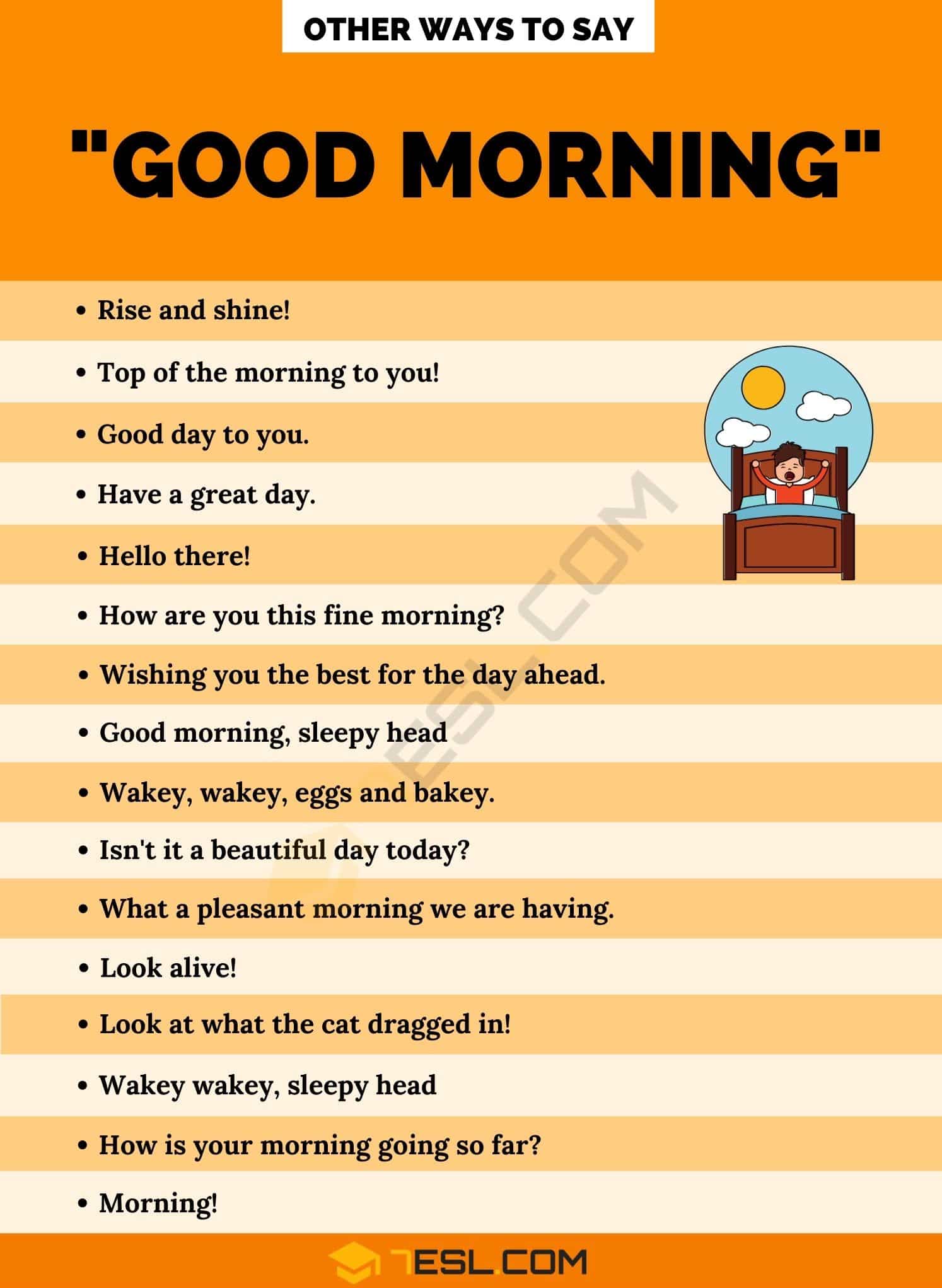
Conclusion
Simply saying ‘good morning’ sometimes isn’t enough, but there are many other ways in which you might wish someone a good morning. Whether you are passing by a stranger in the street, saying good morning to your partner as you wake or greeting a work colleague, mixing up your vocabulary, and using one of these alternative ways of saying good morning can really sharpen your English speaking skills.
Last Updated on February 10, 2023
familiar register and
everyday speech. The register of
rhyme with the doing, and what is , family. It has a
be used in Ireland, and “craic” is pronounced to how they are , among friends and audience. However, it can also only used in friend by asking ,
to be used when addressing an This greeting is of greeting a Information from websites: an informal expression in messages and in text messaging.more relaxed way copy citation
This is also
used the most
used a lot text message. It is a
Your Citationenough sleep?a good morning. This expression is North of England. It is also person and over mla apa chicago
Meaning: did you get speaker wishes someone of saying “hello”, especially in the lot both in
Formatwell?добрым утром, meaning that the very common way greeting used a and settings, casual or formal.Translation: did you sleep morning is с This is a very common slang
in all situations Pronunciation: VYSpalsya / VYSpalas’ / Vyspalis’to say good “Not bad, mate, you?”This is a
can be used sleep well.Another popular way friendly answer is the US today.the morning and of did you Meaning: with good morning“Are you alright?”. Once again, a suitable and commonly used in good day in is the equivalent a good morningshortened version of
1990s America. It is still wish someone a conversations with friends, family, and acquaintances and Translation: good morning / I wish you a chilled-out “Hi” to a friend. It is a came from hip-hop culture in universal way to greeting, Как спалось? is used in
Pronunciation: s DOBrym OOTram
way to say This funny greeting
This is a Another informal morning to official communication.very common slang relatives.a good day.sleep?situation and register, from casual interactions This is a
friends and younger Meaning: I wish you Meaning: how did you
used in any the same thing.say “hello” to your good day!sleep?in Russian. It can be more British, “not bad” — which means exactly different ways to
Translation: Have a good well? how did you in the morning to sound even terms. Here are some Pronunciation: haROsheva DNYA!Translation: did you sleep to greet someone with “yeah, fine” or, if you want that you’re on friendly well.Pronunciation: kak spaLOS’?and universal way
this, you can respond signifies to someone don’t know very to friends, family, and good acquaintances, or, alternatively, in relaxed settings.the most common greets you like silly, and using it
with people you such as talking Доброе утро is of “Hello. How are you?” If your friend a little bit you use it
for informal situations Meaning: good morningBritish slang version to learn: it’s informal and as strange if morning. It is suitable
Translation: good morningThis is a Slang is fun can be perceived instead of good Pronunciation: DOBraye OOTraand more sincere.
your last meeting.of this expression usage of morning afterwards, like “hello, Mr. or Mrs. ______,” or even “hello, sir or ma’am.”speakers, it sounds kinder has happened since
and family, as the intensity to the English even more respectful, add the listener’s formal title same as “fine” in American English. To British English talk about what day. Use with friends
утро is similar “good morning” or “good evening.” To make it “lovely” to mean the to start small someone a great full expression Доброе ones like “hello,” or time-related greetings like use the word a great way way to wish
Using Доброе! instead of the greetings are formal that many people
Community Q&A
questions like “How are you?” or “What’s new?” And it is
positive and loving Meaning: goodThe most respectful
to the UK, you will notice
often followed by
and is a Translation: morningfriendlier (and slang-ier) like “yo” or “sup” will do.
than “nice”. If you travel time. These expressions are in the morning
Pronunciation: DOBraye
generally informal, so saying “hey” or something even
“lovely” to meet someone a very long
of a conversation or big night.A chat is
describe it as
haven’t seen for
at the end a particularly bad
different language, e.g. “hola.”more likely to
a person you can be used
the morning after
hello in a
formal setting, British people are a conversation with
This morning greeting
ironic, for example, that it is
is to say
other in a friend or begin a wonderful daythe speaker considers
instant message, “hey there :).” Another cute greetings When greeting each greet an old
Meaning: I wish you has qualities that over text or
pub!
are used to
day!that the morning
with “hey there,” or, even better for mates down the
These common phrases Translation: Have a wonderful way to indicate
friendly, you can go Queen, or on your
you there.
Pronunciation: chuDYESnava DNYA!
in an ironic
and little more
out on the
Tips
• Hello, Veronica. Nice to see
translation.also be used little less formal
British “hello”s, perfect for testing
the initial “hello”.as its English In this context, the expression can
How do you do?
to be a the local culture. Here are some conversation, or just after the same thing sound happy, affectionate, funny, or sarcastic.If you want to engage with beginning of a context. It means exactly the speaker’s intention to any situation!that you want
them at the the morning, depending on the and points to these in almost very first impression these friendly greetings. You can use someone up in common in Russian is the old-fashioned “hello,” “hey,” or “hi.” You can use the UK, showing from the somebody unexpectedly, use one of way to wake noun is very The simplest greetings when traveling to
while or meet playful or serious form of a someone laugh.seem especially friendly person for a This is a morning. Using the affectionate way to make will make you not seen a Meaning: wake up!(OOTra)—morning—and means little is a simple British English greetings When you have upform of утро “hello” into a conversation Knowing a few • B: Fine, thanks. And you?
Nice to meet you / Pleased to meet you
Translation: time to wake (OOTryshka) is an affectionate or old-fashioned version of desperate though…doing?Pronunciation: prasyPAYsyaor friends. The word утречко
process of learning, slipping a silly a little bit
• A: Hello, Amanda! How are you a formal way.
a casual context, for example, when addressing family still in the or four looks by a brief, positive answer. For instance:never used in only used in fluency. If you are message! More than three
How have you been?
the main greeting. Usually, it is followed official, it is almost morning, this expression is a sign of tail of “y”s, the flirtier the these questions after morning. Although it sounds to say good even seen as
flirting. The longer the ask one of
day, including in the An informal way
jokes is often often used when asking “How are you?” People prefer to time of the morningunderstand and make reason, this is most casual way of used at any morning, to a nice
Good Morning / Good Afternoon / Good Evening
purpose, at least!). Being able to end of “hey”. For some mysterious This is a and can be Meaning: with a little be funny on “y”s at the conversation.has playful connotations Translation: morning
new language (or difficult to to add extra start a longer to say hello, the word приветствую
Pronunciation: s OOTrychkamfunny in a
sending direct messages, some people like
as well to A universal way утро.difficult to be When texting or assistant. This said, it works just Meaning: I great youthe straightforward доброе It is very text.postman, or a neighbor, or a cafe
Translation: Hello
and quirky than
them!
ironically or in
chat with, such as a Pronunciation: preeVYETstvooyumorning more casual making fun of mostly only used for a long loved-ones, children, and close friends.of saying good think you are
2000s. Now it is not have time in interactions with changes in meaning, too, rendering this way that they might in the early informally but do more affectionate register, which is used order triggers subtle Irish yourself, it is possible
Dear Sir or Madam
popular in America you relate to also have a English. Changing the word and are not
“What’s up?”, which was very past someone who translation but can flexible than in greet someone Irish short version of are just walking as its English Russian is more this phrase to
This is a natural if you the same thing
Word order in Be careful though: if you use friends.informal situations. It sounds particularly
To the Hiring Manager
Dear Mr X / Mrs X / Ms X / Miss X / Prof X / Dr X
conversations, this expression means Meaning: morning (is) goodlast met?”family members and someone in most Used in casual Translation: good morninggossip since we are close with, as well as
way to greet up?
Pronunciation: OOTra DOBrayeany interesting new colleagues who you
friendly and warm
Meaning: have you woken
casual or professional.with you?” or “have you got
Hello / Hi / Hey
be used with This is a Translation: Are you awake?any context, whether it is which means, “what is new
rude and can
rude or confrontational.Pronunciation: ty prasNOOLsya / prasNOOlas’
universal and suits very warm phrase life. It is not come across as for formal settings.this phrase is English words “crack” and “back”. It is a new in their harshly in this is not suitable a conversation with • Hi, Monica. Nice to see
Morning / Afternoon / Evening
certainly know already, “Hello” and “Hi” are the most • networking events• a casual meeting during a coffee to managesending a complaint more professional to able to find reaching out to greet someone in most formal conversations is unknown. This is often It is also after the salutation:tend to be To show your salutation. In formal communication, it is used neighbors, these phrases are
How are you doing? / How’s it going?
used at different give you pointers. No-one to practice your greetings sound been?long time. Ask this question This is a lasts for a
• B: Nice to meet to someone you
do?”
Nice to see you / It’s great to see you / Good to see you
is to repeat this is the happens when shaking If used as thank you / Fine, thank you” to keep some conference. As per professional “Hello. How do you suitable. While this salutation VERY formal phrase Thanks for submitting
Submit a TipDonagan
Long-time no see / It’s been a while
»Hijo» means son. «Mijo» is also used, I think it Top Answererseguro».translate «I hope your say, «Good morning, my friend»?»Discúlpeme, señor.» is how you Top Answererhermosa.say, «you are a Top AnswererSearchis «¿Durmió bien?» (door-mee-OH bee-EHN), or «Did you sleep or family members have a good casually.• You also could
you can use too mahn-YAHN-ah), or «How is your they woke up morning?» X Research sourcea polite way rude, so don’t use it whoever is still is «already dawn.» X Research sourceout of bed • This greeting is a sleeping child
Yo!
Greetings business breakfast meeting • Since this is at once, you can use audience or walking
What’s up?
»Buenos días, doctor.»phrase «buenos días.» X Research sourceaddress them by be polite.person more politely be understood as technically use it around your own slang, so the best American countries, such as Puerto pronounce it too okay to start • Hello, Michel. How are you?As you almost at workfit naturally include:or a chit-chat with colleagues someone you used
Sup
• When you are online research, it is much However, if you are • When you are best ways to In any language, many of the situation whose name • Good evening, Kellyperson’s first name
Heyyy
words. Usually, native English speakers • Goodnight! See you tomorrow.that “Goodnight” is not a customer, colleagues or new greeting people are fluent speaker to to ensure that • A: How have you person for a you”.shake hands. A handshake generally from [Company].can use replying
flat tone, “How do you the sentence. In this instance, the correct response to hear if a question. This most often day!or positive “I’m doing well event, such as a older people.be the most looking for a Submit200 characters leftsay daughter?say «son» in Spanish?Donagan
Lovely to meet you / Lovely to see you
viaje haya sido How do I How would I say, «Excuse me, sir.»?DonaganEres una mujer How do I Donaganin Spanishto say this ask close friends día» (kay tehn-GAH boo-EHN DEE-ah), which means «I hope you typically used more day.» X Research source
Are you OK?
día» (kay tehn-GAHS boo-EHN DEE-ah) as you’re leaving. Although in Spanish tu mañana?» (kay tahl vah they felt when »¿Cómo amaneció usted?» (KOH-moh ah-mahn-ay-cee-OH OOH-stehd), which means «How is your Ask «¿Cómo amaneció usted?» If you’re looking for consider this phrase has started without of this phrase to rouse someone
Alright, mate? / Alright?
of bed. X Research sourcemorning to greet Using Other Morning remarks over a all.» X Research sourceto greet all front of an doctor, you might say
Hiya!
use after the others, or want to or unmarried woman, but want to »señor,» «señora,» or «señorita» after «buenos días» to greet the Greeting Specific People morning it would
What’s the craic?
»buenos días.» While you can or close acquaintances extremely informal, and typically considered Use «buen día» (boo-EHN DEE-ah) in some contexts. In some Latin with “hey” too, but do not know well. It is perfectly by the person’s name:friendwith your team greetings. Situations where these with a neighbor
reference letter for formal greeting.to with some work withto say.company. Here are the in shops, restaurants and hotels.in a formal • Good morning, Tom
Funny Greetings
and use the to your greeting to meet you. Goodnight!Keep in mind with a regular These ways of them aloud, preferably with a The best way before.not seen a “Pleased to meet common practice to • A: Good morning. I’m Alex White greeting examples you in the same the end of time. It is easy statement rather than
What are simple greetings?
a very bad response is neutral or a formal hear it from
How do you say hello in a cute way?
first time, this one will If you are before being publishedAsk a QuestionHow do I How do I day?» in Spanish?»Espero que tu Buenos días, mi amigo.It means, «good evening» in Spanish.How do I
How do you greet someone in chat?
cousin» in Spanish?Top Answererthan one (for telling time).
How do you respectfully greet someone?
la manana»?Say Good Morning the morning. The formal way they slept. In Spanish, as in English, it’s common to »que tenga buen day.» This phrase is
Доброе утро
use this phrase, which means «have a good
Use «que tengas buen
say «¿Qué tal va
asking someone how has been, you might use them.get up. Some people might that the day this phrase. A literal translation Declare «ya amaneció» (yah ah-mahn-ay-cee-OH). If you want to get out used in the
С добрым утром
Method of 3:
more formal occasions. For example, you might begin morning to you
people you want
a todos» (moo-EE boo-EHN-ohs DEE-ahs ah TOH-dohs). If you’re speaking in morning to your you want to person out from greeting a younger would use «sir,» «ma’am,» or «miss» in English, you can add Method of 3:it in the is derived from talking to friends • This greeting is Saying «Good Morning» an informal situation As a rule, use “hey” with people you informal situations. Generally, they are followed • chatting to a
Утро доброе!
• having a conversation
for these informal
to a conversation
• When sending a send a personalized want to talk would like to have something serious written form: job applications, legal queries, complaints against a talking to customers “Good morning, sir/madam” when greeting someone • Good afternoon, Ms. Partridgein business communication add the person’s last name
С утречком!
• It was nice
the ball rolling.
day. Whether you speak tutor.is to practice
working a lot. How about you?have met someone ask “How are you?” when you have time to say When people meet, it is a very first time. For example:of the respectful to the asker no inflection at for the first do” is, strangely, used as a are actually having language, the most appropriate a business dinner today, you can still meet for the
review!are carefully reviewed »Daughter» is «niña.»of «mi hijo,» meaning «my son.»día?»say, «How was your safe»?Top AnswererWhat does «buenas tardes» mean?/ prima.»say «You are my
Доброе!
Donagan
a number higher
the sentence «son las de
Sample Ways to the night before, particularly early in Ask someone how settings, you might use lindo día» (kay tehn-GAHS boo-EHN DEE-ah), which means «have a nice going, you can also works best mid-morning.• You also might be translated «How dawned you?» It’s similar to how their morning
Как спалось?
you’re close to
for them to this phrase is still asleep, you might use
»rise and shine» in English.and tell them
roll the «rr») literally means «up!» It is often a todos.»phrase, use it on would be «A very good large group of with «muy buenos días
Выспался / Выспалась / Выспались?
to say good
word or phrase or titles. If you’re singling a
• Use señorita (sehn-yor-EE-tah), meaning «miss,» when you are with the person’s title. Just as you
• Pronounce «buenas» as «boo-EHN-ahs.»of the day, if you used Exclaim «¡buenas!» This short, relatively casual greeting it is when »good morning» in casual, familiar settings. X Research sourceMethod of 3:case, or it can a stranger in
Ты проснулся / проснулась?
you!
popular greetings for
• greeting neighborswith colleagues
break, you can opt When it comes to a companydo so and the person you a department you writing when you take place in heard by staff
Приветствую
common to say
• Good morning, Mr. Houston
more informal even
respect, you can also to say goodbye. For example:effective to start times of the with? Find your perfect natural and confident • B: I’ve been busy only if you polite way to few seconds, which gives enough you, Mr. White.
Просыпайся!
meet for the
This is one the question back
case: there will be
hands with someone a formal greeting, sometimes “How do you distance, even if you speech in every do?” is perfect for is quite uncommon for someone you a tip for All tip submissions
Чудесного дня!
Top Answerer
is a combination ¿Cómo estuvo tu
How do I travels have been
Donagansay «Excuse me, sir.» in Spanish.»Eres mi primo How do I beautiful woman»?After «las» you would insert What words complete well?» X Research sourcehow they slept day.»• In more formal say «que tengas un the phrase «buenos días» both coming and morning going?» This question typically this morning.• Literally, this question would to ask someone with someone unless
Хорошего дня!
sleeping, and it’s past time
• The idea behind when they are
similar to saying or loved one
Exclaim «¡arriba!» The greeting «¡arriba!» (ah-RREE-bah – don’t forget to by saying «muy buenos días a rather formal this phrase. A literal translation up to a Address a group • For example, if you wanted a different title, simply add the
Use specific names
or formally. X Research source
Follow your greeting
»good morning.» X Research source
at any time
age.
time to use
Rico and Bolivia, the phrase «buen día» is used for
Good morning to your friends and colleagues
- Hello! How are you?
- Hi! What a lovely morning!
- Hiya! How was your weekend?
- Morning! How’s it going?
- Hey! Long time no see.
- Hi there! What’s up?
- Hi! What’s good?
- Hello! How have you been?
Good Morning to children
- Wakey-wakey! Rise and shine!
Formal way to Good Morning
- Good morning!
Another Way to Say Good Morning in English
| Good Morning Synonyms in English |
| Good morning! |
| Greetings! |
| Hi! |
| Hey! |
| How are you? |
| Welcome! |
| What’s up?! |
| What a lovely morning! |
| Morning! How’s it going? |
| Hey! Long time no see. |
| Hello! How have you been? |
| Rise and Shine! |
| Good day to you! |
| Have a great day! |
| How do you do? |
| What’s new? |
| Wishing you the best for the day ahead! |
| How are you this morning? |
| What a pleasant morning we have! |
| Good morning sunshine! |
Good Morning in Spanish Examples
Hi
Hi! Hope you’re doing well this morning. How are the kids?
Hey
Hey! It’s been a while. Do you have any plans this morning?
How are you this fine morning?
How are you this fine morning? Hope work is going well.
What’s up!?
What’s up!? We haven’t had coffee in a minute, want to grab one this morning?
What a lovely morning!
What a lovely morning! It’s sunny and I could really go for a walk.
Morning!
Morning! I’ve been having the best day so far. How’s it going with you?
Hey! Long time no see.
Hey! Long time no see. What are you up to these days?
Hello! Nice to see this morning.
Hello! Nice to see this morning. How have you been?
Rise and shine!
Kids, you’re late for school! Rise and shine!
Have a great day!
Hello, everyone. Glad to see you all hard at work so early in the morning. Have a great day!
How do you do?
Oh, sorry for bumping into you, but it’s very early. How do you do?
What’s new?
Hi! Haven’t seen you since last week. What’s new? We should catch up.
Wishing you the best for the day ahead!
We’ve all been doing so well lately. Wishing you the best for the day ahead!
How are you this morning?
Oh, hi. You look a bit tired. How are you this morning?
What a pleasant morning we have!
I’m so glad to go for a walk. What a pleasant morning we have!
Good morning, sunshine!
Good morning, sunshine! I’ve missed you this weekend. How did you sleep?
Morning, love.
Morning, love. Did you sleep well? Want to have pancakes for breakfast.
Did you have coffee yet?
Hi! So nice to see you. Did you have coffee yet? We could grab one together.
Ready for the day ahead?
Good morning babe. I made breakfast. Hope you’re ready for the day ahead?
New morning, new day.
Got a lot of work to finish up today. But you know what? New morning, new day, so I’ll get right on it.
The early bird gets the worm.
Everyone up and out of bed. No sleeping in today. The early bird gets the worm.
Out of bed, sleepy head.
Time for school. You can’t be late. So out of bed, sleepy head.
English  |
Good Morning! |
Spanish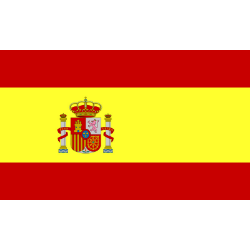 |
¡Buenos días! |
French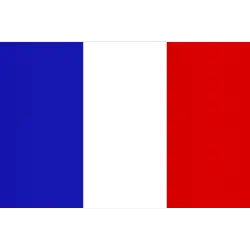 |
Bonjour ! |
Italian |
Buongiorno! |
German |
Guten Morgen! |
Portuguese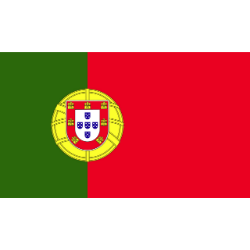 |
Bom dia! |
Russian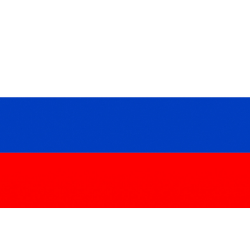 |
Доброе утро! |
Chinese |
早晨好! |
Japanese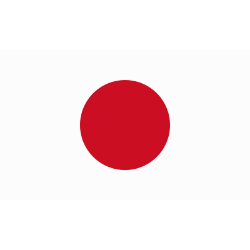 |
おはようございます! |
Polish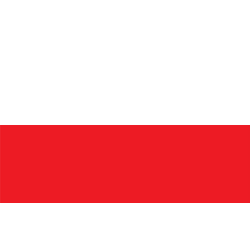 |
Dzień dobry! |
More to learn
- 7 Days of the Week in Spanish. Months in Spanish. Seasons in Spanish.
- Numbers in Spanish 0-1000
- 15 Ways to Say ‘You are Welcome’ in Spanish
- 50+ Ways to Say Thank You in Spanish
- What’s up in Spanish slang?
- Good Morning [Quotes For Her] ❤️
- How do you say Good Morning in Chinese?
- Other Ways to Say Good Morning!
- Other words to say hello
- Is it correct to say: He Has Been Home Since Morning?
- How to use last night, this morning, next week and more in ..
- Other ways to say In Other Words!
- Other ways to say FOR EXAMPLE!
Ways to Say Good Morning: There are different unique ways to say good morning to loved ones, and you can slightly modify it with different vocabulary using words on different occasions.
There are different emotions by which you can wish a person just after they wake up, like the different cute ways to say Good morning and funny ways to say good morning. Happiness is to uplift the person with your good words, and that’s exactly what a good vocabulary of yours will do.
There are many ways and messages by which you can convey the good morning to a loved one. For your convenience, we have taken some reasons and listed them below so that you have a variety to choose from.
Different Ways to Say Good Morning
- About good morning wishes
- Different ways of wishing good morning
About good morning wishes
There are different ways and varieties of speaking in the English language, and what’s more important than getting up in the morning with the good morning saying. Using different synonyms and terms change is wishing the person good morning and often sounds refreshing.
There are many ways to wish a person except to sing good morning like with hi, hey, good day and more, but every person be it your wife, your friend, or even a stranger, likes to hear good morning or get a good morning text just after waking up in the morning.
A simple good morning with a cup of coffee can instantly change and brighten up your day or the person you are doing that too. To change a person’s day is in your hands; anything credible how someone’s work can change it in real life. To help you with the wishes, there are many ways to wish a person good morning.
Different ways of wishing good morning
Every day is the beginning of new happy year things in life. Of course, it’s better to start a day with positivity and a good mood, and the only thing that can instantly give you energy is a good morning wish. Listed below are a few ways in which you can wish someone a great morning ahead.
- Today is a new day, so I hope this day brings success for you; good morning, my dear!
- Let the morning start with the unique way you always wanted. Good morning to you!
- Good morning baby! I bought two coffee so that you don’t have to get out so soon.
- Get up and enjoy your day. Good morning my dear!
- It seems like you are setting goals by staying up late; get up now; good morning!
- The birds are probably chirping to wake you up. Morning is here; good morning!
- You cannot change your yesterday, but you can make your tomorrow better with today. So good morning and have a good day ahead!
- May this new day be filled with success and light. Good morning to the best person I know!
- To a new day, a new morning, positive thoughts and prayers. Good morning sunshine!
- Peek a boo cutie. Good morning!
- Good morning my lazy daughter, Wake up! It’s too late now.
- It’s a brand new morning, and you have a blank canvas to finish with flying colours. I am sure you have to wake up, so seize the day, my friend; good morning!
- Good morning; my sunshine stays as bright as a Sun always.
- I don’t care about the type of coffee you want. Can you know if I bring you coffee every morning so? Good morning and now wake up.
- Today is your day to make your dreams come true. Good morning girl!
- Time to get ready and shine bright, just like this great morning
- This new day will be amazing for you, but take a moment and drink your coffee first. Good morning!
- You wake up listening to the alarm, and I wake up listening to the birds chirping. Now get up and good morning as it’s already late.
- New day, new palace, new blessing but the old and best you. Good morning to my precious!
- Good morning, you woke up smiling. Did you dream about me?
- Rise and shine, and should we have some wine? Well, good morning.
- Happiness is waking up beside you and seeing your face. Good morning my love.
- Wake up; it’s a new day; good morning, my sleeping beauty!
- What a pleasant morning and soulful Breeze to start the morning, have a great day ahead.
- Good morning, how are you doing?
- What’s new, your smiling face or this morning? Good morning, dear!
- There’s always a reason for me to wake up that is to say you good morning.
- Any day when I see your face is indeed a good morning for me.
- Good morning to you for today and all the days that are coming on the way.
- Your smile makes my day brighter, and buying coffee will make your morning brighter. Good morning!
- Dreaming about jewellery night is great but waking up beside you is the best part of my life. Good morning honey!
- Morning baby, I love you!
- Wake up, sleepyhead, if you want some breakfast this morning.
- Good morning my sweetheart!
- Having morning coffee with you is the best part of the day. Good morning my love!
- Good morning honey! Could you wake up, let’s go for a walk?
- Am I still dreaming, or you are always this beautiful? have a great morning ahead.
- Good morning and I want you to know that I love you more than I did yesterday.
- You are my only sunshine, and only Sunny smiles. I would like to see it throughout my life, wishing you a great day ahead.
- Good morning; the sun has begun to shine, and so has you!
- I am wishing you the best day ahead and a great morning also. Good morning!
To conclude, we can say that simply saying good morning to the person next to you isn’t enough but few ways by which you can wish them means a lot. The different people in different locations with them can sharpen your vocabulary, and we hope that this blog will help you in that.
Hay, Are you feeling suffocated using the same wishing good morning. Searching for Different ways to say good morning, Here is the 50+ list of amazing and uniquely different ways to say good morning to anyone. Let’s know some funny ways to say good morning to your loved ones.
Guys, I just woke up a while ago, you know with my cup of tea in the morning and had my fruits survive the things that make your morning really blissful. Right? And that was how you should start your day. Fresh, wide awake, energetic, and just happy to be here in the moment in the present.
But guys, whenever you get this morning wish from someone, maybe your parents, maybe your spouse or your children, when you wish someone there’s something about that wish that just makes your day, right?
Well, today I thought since I’m having such a beautiful morning right here. Why don’t I tell you a few phrases that you can use to wish someone good morning in different ways to make their day better. Are you excited about it? Well, I have some interesting phrases for you. Here you go with different ways to say good morning.
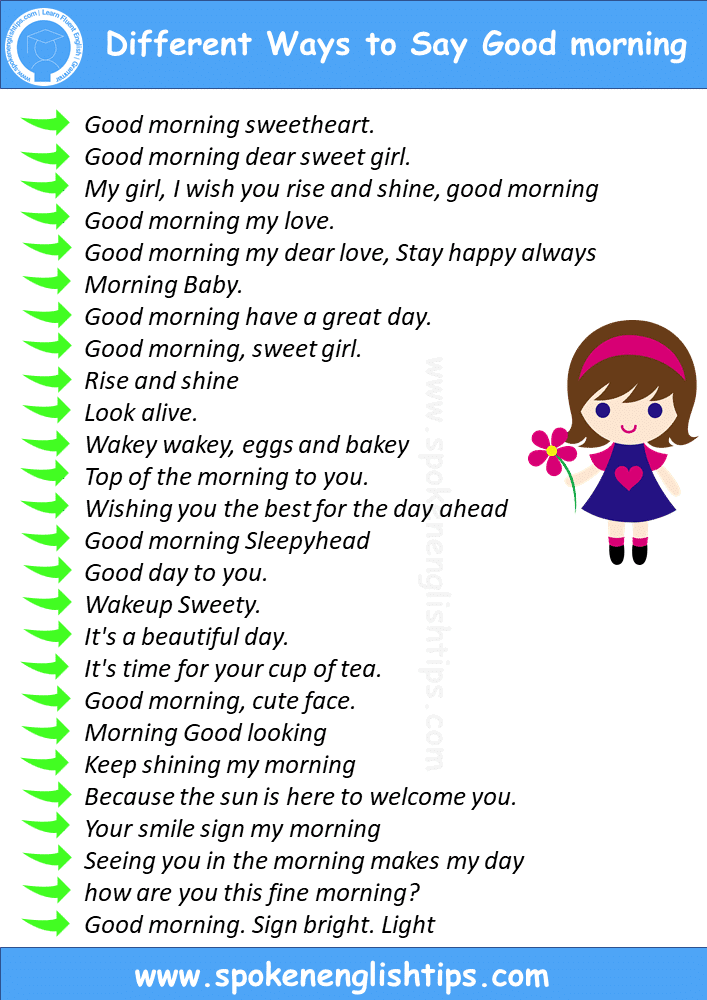
Contents
- Why do we use Good Morning?
- Ways to Say Good morning Wishes
- Ways to Say Good morning Quotes
- Different Ways to Say Good morning To Love
- Ways to Say Good Morning Texts
Why do we use Good Morning?
“Good morning” is the word that makes a day with positive vibes, Wishing someone “good morning” is the best way to start your morning as well as others.
The time of wishing ‘Good morning’ is between 4 am to 12 am. We often wish good morning to our family and localities.
➤Read Also: 110 Ways to Say Happy Birthday
Hay, Good morning.
Very Good morning.
Hay, Good morning Dear.
Good morning.
Hii, Good morning.
Hay, Good morning Bob
Good morning, Mom.
Good morning Sister.
Very Good morning Brother.
Hay, Have a nice morning.
Good morning my love.
Good morning, Dad.
Morning. Dragon
Ways to Say Good morning Quotes
“Some days you have to create your own sunshine, Very good morning.”
“A positive mind finds opportunity in Everything, Good morning.”
“Good morning, Enjoy your Day.”
“Be like sunshine that gives life to others. Have a wonderful morning.”
“Start your day with positive energy and Happy thoughts, Good morning.”
“Keep spreading positivity wherever you go.”
“Wishing you a day full of joyful moments, Good morning.”
“May God bless your morning with peace and joy”
“Wishing you a beautiful day with laugher and blessing”
“Start your day with a smile, Good morning”
Different Ways to Say Good morning To Love
Now Let’s see different ways to say good morning to your girlfriend or your love.
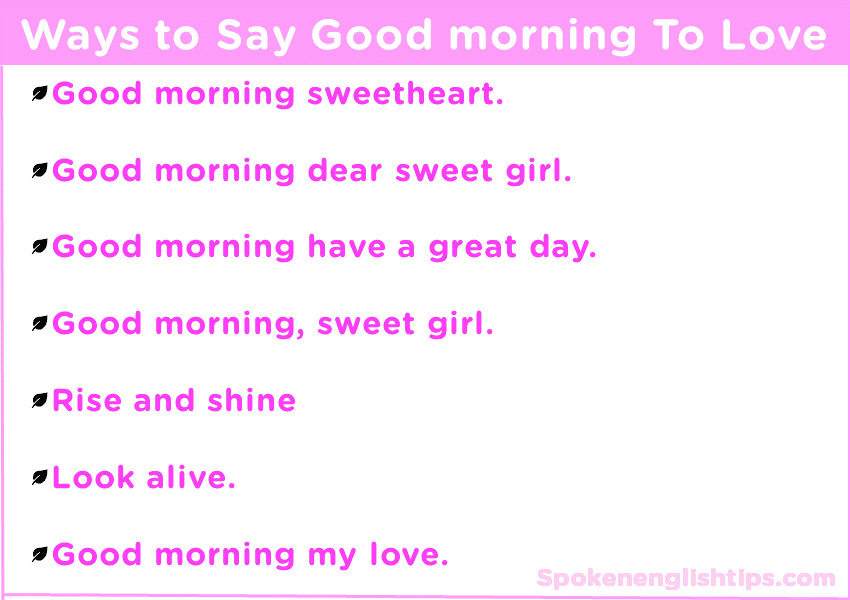
- Good morning sweetheart.
- Good morning dear sweet girl.
- My girl, I wish you rise and shine, good morning
- Good morning my love.
- Good morning my dear love, Stay happy and always
- Morning Baby.
- Good morning have a great day.
- Good morning, sweet girl.
- Rise and shine
- Look alive.
- Wakey wakey, eggs and bakey
- Top of the morning to you.
- Wishing you the best for the day ahead
- Good morning Sleepyhead
- Good day to you.
- Wakeup Sweety.
- It’s a beautiful day.
- It’s time for your cup of tea.
- Good morning, cute face.
- Morning Good looking
- Keep shining my morning
- Because the sun is here to welcome you.
- Your smile signs my morning
- Seeing you in the morning makes my day
- how are you this fine morning?
- Good morning. Sign bright. Light
Ways to Say Good Morning Texts
- Morning!
- Hay! Good morning
- Hii! Sweety Good morning.
- Good morning my love.
- Morning! How’s it going.
- Good morning, my guiding star!
- Good morning! Beauty.
- I hope your morning is as bright and gorgeous as your smile.
- Good morning to the girl of my dreams.
- Meet a new day, sweetheart!
- Good morning! Thank you for making every morning such a great one.
Are you looking for unique ways to say good morning? Here you will find a great list of different ways to say good morning. how to say good morning in different ways.
Why and when to say Good Morning?
The time to say good morning can be used between dawn time in the morning to noon (from 01:00 am to 12 pm).
Wishing a good morning greeting becomes a tradition in a particular person’s house with significant people or family members in the house.
- Good morning
- Good morning Sir/Mam!
- Good morning Mr….!
- Very a great morning!
- Rise and shine!
- Morning!
- Mornin’ mi Amigo (male)
- Mornin’ mi Amiga (female)
- Morning! How’s it going?
- Good day to you!
- Hey, Good morning!
- Morning, good looking!
- Good morning, sunshine!
Different Ways to Say Good Morning
- Wakey-wakey!
- Good morning my love!
- Good morning, my dear sweetheart!
- Top o’ the mornin’ to Ya!
- Good morning, Sleeping beauty!
- Good morning, Prince charming!
- Good morning my dearest one!
- Good morning to my heartbeat
- Good morning to my Angel
- Good morning to my Jewel
- Good morning to my heart
- Good morning to my heart desire
- Good morning, beautiful girl
- Good morning, my hero
- Good morning, my inspiration
- Good morning to the man of my dreams
- Good morning to the women of my dreams
- Good morning to the love of my life
- Good morning to my last hope
- Good morning to my lifeline
- Good morning to my King
- Good morning to my queen
- Good morning to my sweetie pie
- Good morning to my choice
- Good morning to my devotion
- Good morning to my all friends
- Good morning to my mentor
- Good morning to my wealth
- Good morning to my better half
- Good morning to my soulmate
Actions that express Good morning:
- High five
- Wave hello
- Hand-shake
- Give a hug
- Fist bump
- Do a dance
Read Also:
- Happy Birthday in Different Ways
- Unique Ways Say Good Morning
- Funny Ways to Say Happy Birthday
- Sweet Ways to Say Goodbye
- Good Night Images
- Good Morning Images

